Presenters
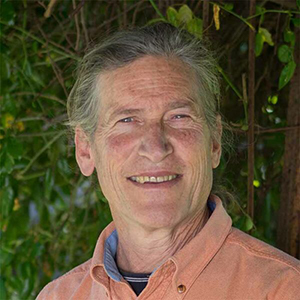
David Holmgren

David Holmgren
- Conference
David Holmgren is best known as the co-originator of permaculture. In 1978, he and Bill Mollison published Permaculture One, starting the global permaculture movement.
Since then, David has developed three properties, consulted and supervised on urban and rural projects, written eight more books, and presented lectures, workshops and courses in Australia and around the world. His writings over those three decades span a diversity of subjects and issues, whilst always illuminating aspects of permaculture thinking and living.
At home at Melliodora in Hepburn, Central Victoria, Dja Dja Wurrung County, David is the gardener, silviculturist and builder. Within the permaculture movement, David is respected for his commitment to presenting permaculture ideas through practical projects, and showing by personal example that a sustainable lifestyle is a realistic, attractive and powerful alternative to dependent consumerism.
As well as immersion in the practical side of permaculture, David is passionate about the philosophical and conceptual foundations for sustainability, which is the focus of his Permaculture: Principles and Pathways Beyond Sustainability (2002/2017). This book has been a significant influence on permaculture thinking and the development of Transition Initiatives around the world. His Future Scenarios work has seen him recognised as a significant thinker about the ‘Energy Descent’ future. RetroSuburbia: the downshifter’s guide to a resilient future (2018) is his 592-page manual showing how Australians can downshift and retrofit their homes, gardens and selves for resilience into an uncertain future.
David and his partner Su started Melliodora Publishing to promote both his titles and those of other authors writing on related themes.
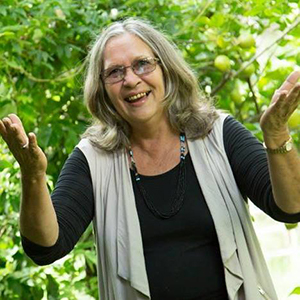
Robyn Francis

Robyn Francis
- Conference, Convergence, Pre-IPC PDC
Robyn Francis , shares a wealth of 40 years experience in international permaculture education and design, having taught 150 PDC’s and over 100 specialist advanced courses and seminars throughout Australia, NZ, Indonesia, Cuba, India, Taiwan, China, USA, France, Iceland and Germany since 1983. Robyn founded Permaculture College Australia to operate the educational programs at Djanbung Gardens with a dynamic team of qualified and experienced trainers and practitioners.
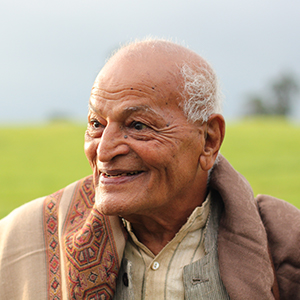
Satish Kumar

Satish Kumar
- Conference
A world-renown author and international speaker, Satish founded The Resurgence Trust, an educational charity that seeks to inform and inspire a just future for all. He was the Editor of the charity’s change-making magazine, Resurgence & Ecologist, for over 40 years. The Guardian described this magazine as the ‘spiritual and ecological flagship of the environmental movement’.
Satish has been the guiding spirit behind several other internationally respected ecological and educational ventures. He co-founded Schumacher College which he continues to serve as a Visiting Fellow.
Satish’s autobiography, ‘No Destination’ sold over 50,000 copies, inspiring change around the world. Through his writing, teaching and international talks, Satish passionately shares visions of the more beautiful world our hearts know is possible.
In 2014, he was appointed an Oxfam UK Ambassador and is also a member of the Advisory Council of the Gross National Happiness Centre of Bhutan.
Satish received the Jamnalal Bajaj International Award for promoting Gandhian values outside of India.
Satish continues to teach, run workshops, and write about reverential ecology, holistic education and voluntary simplicity and is a much sought-after international speaker and author.
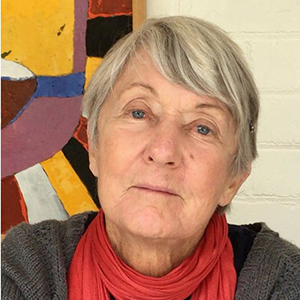
Rosemary Morrow

Rosemary Morrow
- Conference, Convergence
Rosemary Morrow trained in agricultural science at Sydney University, rural sociology at the Sorbonne in Paris, development at Reading UK and horticulture at TAFE but, after spending time in Africa, she realized there needed to be a better alternative to conventional agricultural practices. She found this in the ethics and integrated applied science of permaculture, and has been teaching permaculture ever since. She is the author of numerous publications including Permaculture Teaching Matters, The Earth User’s Guide to Permaculture, which has been translated into many languages, and The Earth User’s Guide to Teaching Permaculture. In 2022, Rosemary published her new book ‘The Earth Restorer’s Guide to Permaculture.’
For almost 40 years Rosemary has worked extensively with farmers and villagers in Africa, Central and South East Asia and Eastern Europe. Rosemary has especially dedicated much of her efforts to refugees the people of war-torn nations such as Vietnam, Cambodia, Uganda, Ethiopia, Afghanistan, Kurdistan and East Timor, and to communities experiencing the serious effects of climate change like the Solomon Islands, and the effects of the GFC, like Spain, Greece and Portugal.
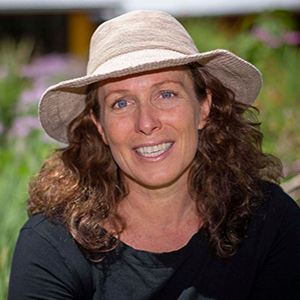
Morag Gamble

Morag Gamble
- Conference, Convergence, Pre-IPC PDC
Morag Gamble is the founder of the Permaculture Education Institute with students on 6 continents, and has led programs in 22 countries. She is the Executive Director of Ethos Foundation, a small charity helping provide free permaculture education in East Africa, and co-founder of Permayouth.
Morag Gamble is an acclaimed teacher, presenter, author, blogger, filmmaker, designer and educator. In all of her work, Morag explores how we can live more peacefully and simply so that we may thrive together on this beautiful blue planet.
She sees the direct social and ecological impact of industrial farming on marginalised farming communities around the world — in Indonesia, India and East Africa.
Her YouTube channel, Our Permaculture Life, and Our Permaculture Life blog have both been accessed around 10 million times. She invites fascinating guests to her podcast, Sense-Making in a Changing World, each week.
And she’s a regular contributor to Pip Magazine, penned chapters for Permaculture Pioneers and Reclaiming the Urban Commons, and wrote Brisbane City Council’s Urban Agriculture Report.
Read more about Morag Gamble.
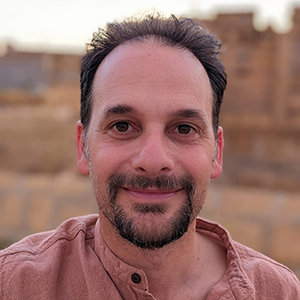
Andrew Millison

Andrew Millison
- Conference, Convergence
Andrew Millison is a permaculture teacher and practitioner, media maker, and gardener. He is a Senior Instructor II in the Department of Horticulture at Oregon State University (OSU) where he founded OSU Permaculture Design in 2009.
Collaborating with experts at OSU, Andrew developed an online permaculture education program with niche offerings that has evolved into a worldwide program that has served thousands of students throughout the planet. Prior to teaching at Oregon State University, Andrew taught at Prescott College in Prescott, Arizona.
Andrew is a documentary videographer who travels the world documenting epic permaculture projects in places such as India, Egypt, Mexico, Cuba, and throughout the US.
Some highlights on his Youtube channel, Andrew Millison, are his series, “India’s Water Revolution”, featuring some of the most impactful large scale permaculture projects on the planet, as well as his mini-documentary he made in collaboration with Oregon State University Productions about Mexico City’s chinampas.
Read more about Andrew Millison.
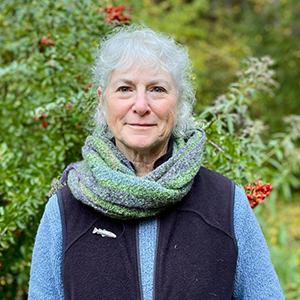
Jude Hobbs

Jude Hobbs
- Convergence, Pre-IPC PDC, Pre-IPC PTT
USA
‘DESIGNING AND IMPLEMEN MULTI-FUNCTIONAL HEDGEROWSTING’
Jude Hobbs is an internationally recognized permaculturist with over 38 years’ experience in the design and teaching fields. Jude lives in the Cascadia Bioregion and teaches via her business Cascadia Permaculture. As an educator she conveys her passion for permaculture by providing curricula developed to encompass diverse learning styles with teaching techniques that are accessible, inspiring, fun and information rich.
Her courses offer a safe place for learning, the strategies to understand whole systems design/teaching and the confidence to get out there to do awesome work via a tool kit for action. Through her business, Agro-Ecology Northwest, Jude specializes in designing environmentally sound solutions by optimizing resource conservation, biodiversity, soil and watershed enhancement and income diversification on large and small-scale acreage.
She is the co-author of the OSU Publication; A Guide to Hedgerows: Plantings that Enhance Biodiversity, Sustainability and Functionality em8721
Jude is a co-founder of the Permaculture Institute of North America (PINA) and actively supports the next generation of permaculturists through continuing education and professional development. Jude’s intention is to empower people to creatively change their everyday patterns so as to care for the earth and each other.
She co-tends Wilson Creek Gardens, a 7-acre home place and demonstration site located in Cottage Grove, Oregon U.S.A.
In addition to teaching in the Pre-IPC PTT, Jude will be sharing ‘DESIGNING AND IMPLEMEN MULTI-FUNCTIONAL HEDGEROWSTING’ in the convergence.
Description of Jude’s workshop:
Class Description:
A multi-functional hedge is a beautiful and biologically diverse component of rural and/or urban landscapes. These multi-tiered assemblages of trees, shrubs, ground covers, vines, grasses, flowers and herbs can border fields, waterways or city lots.
During this workshop we invite you to design a hedgerow where you live or for a special project.
The class includes this basic information:
– A Historical Perspective of Hedge Plantings
– Determining a site to install a hedge in rural or sub/urban settings on any scale
– Understanding basic design principles and techniques
– Assessing the diverse functions of a hedge and how it applies to your needs and the
sites’. Such as: soil stabilization, windbreaks, encouraging beneficial Insects, shelter and food for wildlife and people, privacy screening as well as ways to diversify your income.
– Determining plant selection based on site and functions
– Offering the steps to establishment, maintenance and assessment
– Examples and resources
This class is for home gardeners, landscapers, farmers..anyone interested in Hedgerow application.
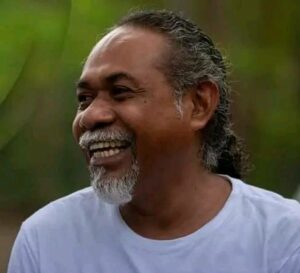
Eugenio Lemos

Eugenio Lemos
- Conference, Convergence
East Timor
‘Permaculture youth action in the era of climate crisis‘
Eugenio Fatima Lemos or known as Ego Lemos. Ego is the Founder and CEO of Permatil Timor-Leste and Co-founder and a Director of Permatil Global. Work as a national adviser for Timor-Leste Ministry of Education. Now been a Timor-Leste Goodwill Ambassador for Arts, Culture and Environment.
He co-authored ‘Permaculture Gardens for Kids’ produced by PERMATIL, along with both editions of the A Tropical Permaculture Guidebook – a Gift from Timor-Leste, edition 2021. (http://www.permatilglobal.org/). He is sole author of the ‘Training Manual for Agro-biodiversity in Timor-Leste (GIZ-AMBERO) and the Arts and Culture section of the National Curriculum for Basic Education Grad 1 – 6 (Ministry of Education of Timor-Leste). He also remains an ongoing contributor for numerous course curricula and content for Permatil TL, international NGOs, and the Timor-Leste National University in Dili. Ego is the Co-founder of the Permaculture Youth movement – PermaYouth in Action and PermaKids, Co-founder of Water Conservation Movement in Timor-Leste, and of the Sustainable Agriculture Network and Organic Agriculture Movements.
He received several awards for his music and environmental works such as Ramon Magsaysay Award 2023, National Medal ‘Order of Timor-Leste’, by the current President Republic Democratic of Timor-Leste May 2023, Permaculture Elder Award by Permaculture Association of Australia April 2023, Tourism for All Award ‘Climate Champion’, USAID, October 2021. The Earth Hall of Fame KYOTO, The Earth Forum Kyoto, Japan, February 2019. Earth Company Impact Hero Finalist, Asia-Pacific 2019. Human Right Award ‘Sergio Viera de Mello’ President Palace of Nicolao Lobato, Republic Democratic of Timor-Leste, 10 December 2018. Won Best Original Song Composed for Screen at the 2009 APRA-AMCOS Screen Awards in Australia.
More about Ego’s presentation:
As we all know, food sovereignty of every country in the world are currently under thread as a global impact on our Mother Earth are at a critical crossroad, with many factors severely damaging our natural resources, especially our water, agricultural, terrestrial, and marine ecosystems. For many generations, humans have plundered the Earth’s resources as a money-making opportunity, and in doing so have robbed future generations of water security, food sovereignty and a life free of climate change.
Through environmental advocacy, skills training and awareness-raising of ecosystem literacy, permaculture and traditional knowledge, we can build new generations of citizens who have the understanding, capacity, and confidence to effectively tackle climate change and its effects.
Young people of the world are key to achieving sustainable development and restoring the long-term viability of our environment across the globe. It is essential that all young people receive equal access to quality education and training, to justice and health services, be protected from violence and abuse and have opportunities for employment and meaningful participation in society. For more information you can download The Tropical Permaculture Guide Book on https://permatilglobal.org/
Permatil (Timor-Leste) and Permatil Global are committed to engaging all youth in the practice of permaculture through the PermaYouth in Action movement under the leadership of PermaYouth Association in Timor-Lete. This will grow new environmental leaders and equip youth to share the knowledge and skills with their communities. Knowledge and skills to rehabilitate environments, become water, seed, land and food resilient and implement climate mitigation and adaptation strategies.
The impact we can create together will not only restore local environments and offer sustainable local livelihoods but will multiply and spread far and wide – increasing the wellbeing of our communities, entire countries, and our planet, now and into the future.
Let’s grow the change – Permaculture. Everyone. Everywhere.
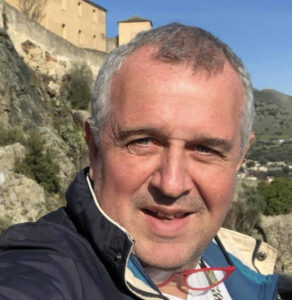
Bert Peeters

Bert Peeters
- Convergence
Belgium/Philippines
‘Restoring ecosystems and upscaling permaculture efforts’
Bert has been in the Philippines for more than 33 years. He started permaculture in 2000 with a course in Findhorn, Scotland and with Geoff Lawton in Australia. Later he added a teaching course in Hilo, Hawaii. In 2000 Bert co-founded Cabiokid foundation, then registered the Philippines Permaculture Association (PPA) and more recently created the Brilliant Practices Permaculture Inc. as a consultancy agency. Most work went into setting up a development site through Cabiokid foundation. To see is to believe so they focused on what a permaculture site could look like in the middle of the plains of central Luzon on the island of Luzon. Through PPA, they build a network of practitioners and have been organizing national permaculture convergences since 2015. Their work is on publications, teaching and creating accreditation for good permaculture sites all over the country. Bert and his permaculture colleagues developed a learning and research center within the Cabiokid land development to allow people to come and study all about permaculture. Personally he is teaching, designing and growing stuff in the best of his capacities. A lot of what he does is still focused on advocacy as they promote the permaculture paradigm to cooperatives, farmers and government officials.
Bert will be sharing ‘Restoring ecosystems and upscaling permaculture efforts’ in the convergence.
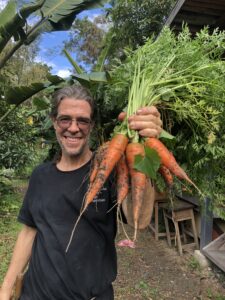
Peter Morehead

Peter Morehead
- Pre-IPC PDC
Taiwan/USA
Peter is originally from Madison, Wisconsin, USA. He is the co-founded Earth Passengers Permaculture Design with his wife Chiang Hui-i. Since high school, he has been highly interested in learning how to live a more environmentally responsible lifestyle. While survival skills were a primary focus in his teens, Peter realized that environmental problems had become so severe and complicated that only communities working together could effect change. In 1996, Peter launched a webpage on permaculture in university and helped establish a CSA system at Maplewood Gardens in Wisconsin. After living in Taiwan for several years trying to sneak environmental education into children’s English lessons, in 1999 Peter decided to take a Permaculture Design Certificate Course in Australia at Tyalgum Farm established by Bill Mollison. Upon return to Taiwan, Peter and Hui-i found a shack in the mountains above Taipei City where they began getting more hands-on practice. During this time, Peter began introducing the concepts of permaculture in Taiwan, starting with a community college course in 2002 and island-wide solar cooking workshops in 2003. Peter became the first certified permaculture teacher in Taiwan after taking an Advanced Permaculture Design Course in Teaching in 2006.
Peter has more than 24 years’ experience in permaculture design with a solid foundation in both theory and practice. He regards his career as soil regeneration, restoring ecological diversity, feeding people and inspiring others to live more resilient lifestyles. In addition to teaching courses in urban communities, villages, and schools all over Taiwan, Peter also provides professional permaculture design services. Apart from growing vegetables, fruit and animals, and running an internship program, other work includes the ongoing implementation of Earth Passengers Permaculture Learning Center design, various designs for corporate farms and homesteads, design and implementation of rainwater harvesting systems, ecological education site design, rooftop utilization designs, and renovation of traditional architecture using natural building materials.
Peter is frequently invited by government and private organizations as a keynote speaker on ecological design, has served on the jury of the Taipei Design Awards and the Taiwan International Sustainable Design Competition. Other projects include an urban space community design course, green campus design, and courses for the Partnerships for Community Development (PCD) in Hong Kong. Peter is often invited to teach and consult throughout China, including urban and rural areas of Shenzhen, Xiamen, Chengdu, Chongqing, Fuzhou, Guilin, Beijing, Guizhou, Zhengzhou, Huizhou and Yunnan.
Areas of expertise:
whole systems design, soil regeneration, natural building, passive solar design, appropriate technology, ecological agriculture, rainwater harvesting.
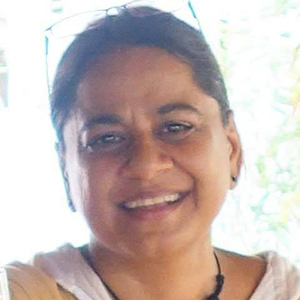
Clea Chandmal

Clea Chandmal
- Convergence, Pre-IPC PDC
India
’Climate, food and income security in drought ridden Central India‘
Clea’s expertise lies in Regenerative Systems with an academic background in Genetics, Ecology, Evolution, Plant Breeding, and Plant Molecular Physiology from the University of Cambridge, UK, as well as certifications in Permaculture from Bill Mollison; Geoff Lawton, Greg Knibbs, and Andrew Millison. With over 30 years of experience at her ‘food forest’ farm in the Western Ghats, India, she has led the development of the ‘Forest Floor Way TM’ and ‘The Forest WayTM.’ These innovative approaches repair soils, handle grey and black water and also establish productive, biodiverse food systems, applicable across various soil and climate types, from arid to waterlogged soils. Clea’s methods have repeatedly shown to yield fast results without elaborate irrigation or fertilizer use, specially catrering to low-income farmer groups.
As a Permaculture design facilitator, her expertise covers soil regeneration, waste management, landscape hydration, food forests, sustainable agriculture, and addressing climate, food, nutrition, water, and income security for both large and small-scale Indian farmers. Beyond agriculture, Clea focuses on mitigating human nutritional deficiencies in tribal communities through soil health and biodiverse kitchen gardening. Currently, her efforts concentrate on the ‘Forest Way TM’ for tree-based farming, to alleviate animal-human conflict, particularly in Central Indian and Western Ghats tribal communities. Clea’s overarching mission is to merge human systems positively with the Earth and its diverse species.
In addition to co-teaching the Pre-IPC PDC, Clea will be sharing ’Climate, food and income security in drought ridden Central India‘ in the convergence.
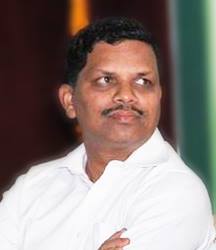
Avinash Pol

Avinash Pol
- Conference
India
Dr. Avinash Pol is a dentist by degree and a ‘Water Doctor’ by heart. For a decade, he practiced as a successful dentist in the Satara district of Maharashtra and was moved by the stories of many of his patients, who were struggling with drought, poverty and lack of knowledge on government schemes and benefits. In the late 90s, he began his journey in rural social transformation and it has been 25 years since he has been tirelessly working to improve the lives and futures of rural populations of Maharashtra. He has personally enabled almost a 100 villages to tackle drought and inspired hundreds of young people to offer shramadaan, or voluntary manual labour, to build structures to conserve water. Since 2016, he has been working as the ‘Pramukh Marddarshak’ or Chief Advisor to Paani Foundation. From 2016-2019, the organisation trained over 6,000 villages in Maharashtra to fight drought. This movement led to the creation of over 550 billion litres of water storage capacity in Maharashtra. Currently, Paani Foundation works with almost 40,000 farmers on water conservation, management and sustainable agriculture practices.
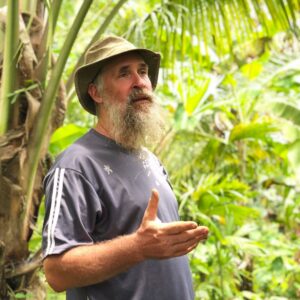
Christopher Nesbitt

Christopher Nesbitt
- Convergence
Beliz
Christopher took his PDC in 1991 and started trying to replicate the arboreal architecture of primary habitat later that year. Some parts of their farm have similar functions of nutrient cycling and sub canopy species with market value.
Chirstopher offered their first PDC fifteen years later in 2006 with Toby Hemenway and Penny Livingston. have co-taught 15 PDCs. From 1997-2004 he worked in the cacao industry with indigenous farmers and have visited around 600 cacao farms in Belize, Panama, Costa Rica, Guatemala, Venezuela and the Dominican Republic. He is passionate about agroforestry.
The farm he manages is called Maya Mountain Research Farm. It is a 35 year old experiment in degraded land repair. Much of the work has been informed by a rigorous application of the permaculture principles.
Christopher and his team are focused on the intersection between agriculture and ecology, that sweet point where food, fuel, fiber, fodder, marketable and medicinal crops can be produced in systems that replicate ecosystem services of soil and soil moisture retention, habitat creation and carbon sequestration. Some of theri farm is covered in towering trees we planted, 35 metres tall, while other parts are being established presently.
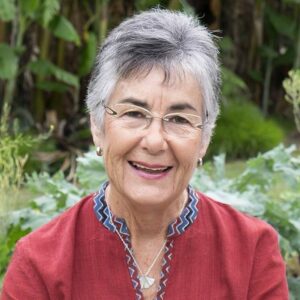
Trish Allen

Trish Allen
- Convergence
New Zealand
Trish Allen holds a Diploma in Permaculture. She is also a registered permaculture teacher with Bill Mollison’s Permaculture Institute and also with Permaculture in New Zealand. Trish was formerly an IPCC Councillor for 8 years.
She has over 30 years’ experience as a permaculture practitioner including establishing the award-winning Rainbow Valley Farm in Matakana with her late husband Joe Polaischer. The farm demonstrated permaculture in action and inspired thousands. Trish has now moved on and established a village-scale model of permaculture and shares her knowledge by teaching permaculture-related courses and workshops. She has established a community garden in her village and set up a weekly greenswap where locals share the surplus from their gardens. She is also founder of Mahurangi Wastebusters which aims to divert waste from landfill and promotes a circular economy.
Trish would like to share her journey of building community resilience. Starting with establishing a permaculture farm (Rainbow Valley Farm) with her late husband in the north of New Zealand over 30 years ago, turning rubbish land into a permaculture paradise, becoming a permaculture teaching centre, and setting up a village farmers market where we sold our farm produce.
After her husband passed away she moved to the village where she established a community garden and set up a weekly greenswap where locals come together to share the surplus from their gardens. Trish also founded a non-profit organisation called Mahurangi Wastebusters which now runs two community recycling centres, diverts waste from landfill, recovers resources, promotes a circular economy and creates jobs. The organization now has 8 paid staff.
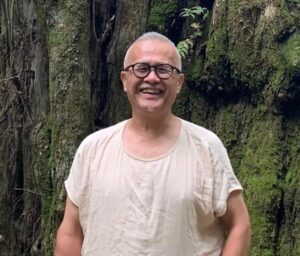
Kiyokazu Shidara

Kiyokazu Shidara
- Conference
Japan
‘Satoyama Spirit and Permaculture – creating a permanent culture based on indigenous culture of Japan‘
Shidara is the president of Permaculture Center of Japan.
About his presentation:
For the further development of Permaculture, we need to focus on the reevaluation of traditional culture surviving in local areas in non-western countries. In his book “Permaculture A Designer Manual” Bill Mollison emphasized the irreplaceable value and function of indigenous cultures that enable the people to cooperate with nature. More than 150 years ago, Dr. Franklin Hiram King, a former U.S. Department of Agriculture official, visited China, Korea, and Japan to research how these countries could achieve successful harvests for more than thousands of years without losing fertile soil. In the report he wrote after the research, he called the culture shared by these countries “Permanent Culture”. In Japan, as one of these countries, even distorted by the invasion of devastative Western culture characterized by comprehensive scientific and technological development supported by capitalism after World warⅡ, indigenous cultures still survive in local areas blessed by nature. Satoyama areas, located at the periphery of rural villages, have served to create a harmonious relationship between nature and humans. From the viewpoint of landscape design, the mixture of nature and human behaviors in Satoyama resulted in creating a very productive and attractive site for both humans and wildlife.
Fortunately, Permaculture Center of Japan is located close to Satoyama areas, which enable the people interested in permaculture to have the chance to see its beauty and experience traditional life with it. In my presentation, Shidara would like to focus on the structure of Satoyama and think of the possibility the life of Satoyama can contribute to the further development of Permaculture.
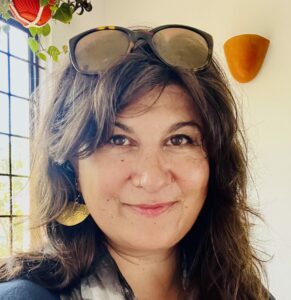
Natalie Topa

Natalie Topa
- Conference
“Designing for Resilience in Displacement and Developing Contexts”
For the last 20 years, Natalie Topa has been living in East Africa, working across all regions in Africa, as well as southeast Asia and the Middle East. During this time, Ms. Topa has been working with women, farmers, youth, governments, universities and NGO and UN staff in building permaculture-based resilience to various shocks that impact a community. Such shocks can include extreme events caused by climate change and ecological collapse, disruptions in economic trade and supply chains, war and political strife, and the displacement which can arise from these shocks. Using her background in Urban and Regional planning and design, coupled with more than a decade of experience in applied regenerative and permaculture-based design, Ms. Topa has worked with various NGOs and agencies to use design thinking to address the myriad problems faced by households and communities in various contexts. This includes leading teams and communities in passive water harvesting design for drought proofing and flood proofing, agroforestry, large scale land restoration and green infrastructure for turning flooods in to food, and landscapes from fragile to fertile.
Ms. Topa currently works with the United Nations World Food Programme, the world’s largest humanitarian agency, as the Global Advisor for Regenerative Resilience. She supports WFPs Regional Bureaus and country offices around the world in practical trainings to apply design thinking for resilience in household gardens, design of Sponge Homesteads and Sponge Farms, refugee camps and settlements to village level designs, watershed restoration as well as green infrastructure for hydrological stabilization. Ms. Topa trains team on how to carry concepts of biodiversity recovery, living soils, seed sovereignty, healthy hydrology and energy-based design in to rural and urban contexts at various scales.
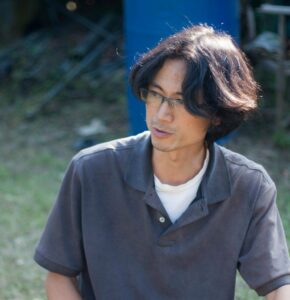
Yip Tsz Shing

Yip Tsz Shing
- Convergence, Pre-IPC PDC
Hong Kong
Tsz Shing, a Permaculture practitioner and PDC instructor, establishes his first
community farm – O-Farm since 1999. With 25-year experience in applying
sustainable agriculture and gardening practices, he has been lately evolving into a
local community agriculture campaign named “Agrivengers” which endeavors in
recruiting, educating and supporting the new generation in implementing CSA.
Being the co-founder of the Permaculture Institute of Hong Kong, Tsz Shing
dedicates his work on nurturing local practitioners in permaculture, facilitating and
designing community projects in sustainable gardening and farming. He is actively
involved in promoting and leading sustainable urban agriculture projects with
various entities including art spaces, governmental bodies and private enterprises in
Hong Kong.
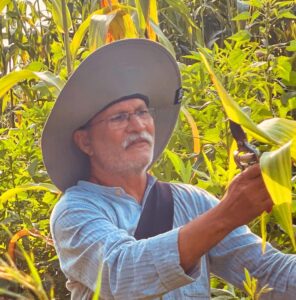
Narsanna Padma Koppula

Narsanna Padma Koppula
- Convergence
India
Narsanna Koppula is a permaculture practitioner, designer, teacher and campaigner of permaculture practices all over the world. He has pioneered permaculture in India as a protege of Dr. Venkat, Bill Mollison and Robyn Francis. He also served on the Board of the Permaculture Association of India. For the past two and a half decades, Narsanna’s environmental-humanitarian work has restored degraded lands while also improving the livelihoods of local farming communities in rural Telangana and Andhra Pradesh. Narsanna’s expertise lies in watershed management, specifically in using efficient techniques in command irrigation. He also specializes in Tree Based Farming Systems (TBFS) and is currently supporting 1000 tribal families with cultivating 100,000 fruit and 3 lakh mixed forest species under the Tribal Development Program across XX acres of land. Narsanna is committed to strengthening agricultural livelihoods, and increasing ecological resilience through permaculture farming practices. He believes that forests are the future and he strongly advocates for forest-based farming, Permaculture through his non-profit organization “Aranya Agricultural Alternatives”, which presently operates in rural and tribal areas of Telangana and Andhra Pradesh, India. Through the Aranya Permaculture Academy, Narsanna leads a six-month internship programme, where students work alongside local farmers to implement permaculture-based projects in rural areas. He also evaluates a wide variety of natural resource management projects and engages with multiple national and international organizations. Narsanna received his Permaculture Certificate from the Permaculture International Institute, Australia and holds MA .LLB degree from Osmania University, Hyderabad
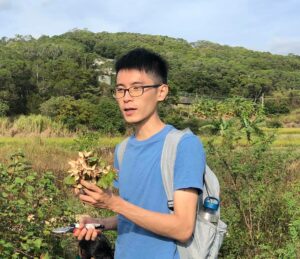
Shen Zhixuan

Shen Zhixuan
- Convergence
Taiwan
‘From the solitary experiment of raising chickens on the balcony, to the collective practice of community chicken coop’
Shen Zhixuan is a permaculture practitioner with a background in industrial design. He started working at a design consulting company after graduating from graduate school. The days of working overtime quickly drained the enthusiasm of this fresh graduate. This low-quality life made it impossible for him to convince himself to create satisfying work. Shen Zhixuan kept pondering, “What kind of life do I really want?”
In 2018, an unexpected military recall order gave Shen Zhixuan a chance to catch his breath. He used this five-day break to recharge and think about his next steps in life. During his time in the military camp, he read some books that he prepared in advance, and was introduced to the concept of permaculture design. The books mentioned that chickens, which can recycle household food waste and lay eggs, are excellent companions in the pursuit of a sustainable lifestyle. Thus, the idea of raising chickens began to take root in Shen Zhixuan’s mind, and he started to contemplate how to recreate the rural chicken-raising scene in an urban setting.
In the convergence, Shen will be sharing “From the solitary experiment of raising chickens on the balcony, to the collective practice of community chicken raising; How can ‘raising chickens’ serve as a connection to build a better community life, thus achieving the sustainable spirit of caring for people, caring for the environment, and sharing excess resources? Through the over two-year practice story of the Hsinchu Six-Burner Large Chimney Insulated Chicken Coop, let’s explore the ‘chicken secrets’ within!”
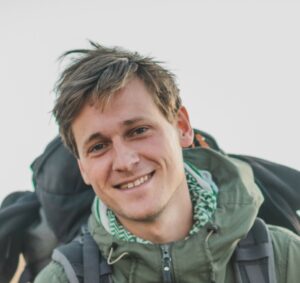
Henner Leithäuser

Henner Leithäuser
- Convergence
Germany/Taiwan
‘The integration of mushroom cultivation into biodiversity-based farming systems’
Growing up in the German countryside nearby lakes and forests, Henner has been interested in protecting our natural environment and sustainable land management my entire life, which finally led him to pursue a master degree in environmental planning & water and costal management. His first practical experiences with permaculture was during an internship at Earth Passengers in Taidong, which led to a continued partnership with various mushroom cultivation agroforestry related projects. Now he is in the mid- to final stages of PhD at the department of forestry of the National Taiwan University, where Ihe intends to publish mainly in the fields of agroecology and biodiversity-based farming systems. One of his particular interests is the integration of scientific and local ecological knowledge for the improved management of our natural resources. He regards permaculture as one of the approaches in this regard that not only points at the problems but also provides solutions.
Henner draws his inspiration from natural ecosystems – particularly forests and riparian ecosystems, as one of his passions is to see things grow. Henner will be presenting ‘The integration of mushroom cultivation into biodiversity-based farming systems’ in the convergence.
In the frame of his PhD research he is exploring ways to integrate mushroom cultivation into biodiversity-based farming systems in order to support communities and farmers who want to diverge from the current production paradigm of agriculture. In his research he is not only looking at the technicalities that lie behind mushroom cultivation, but also at the underlying knowledge co-creation process, in which scientists and farmers are becoming co-researchers developing locally-adapted methods, using participatory methods. Thus, his presentation would both touch on the topic of mushroom cultivation agroforestry and the philosophical foundation for the transition from production-based science and agriculture towards biodiversity-based and holistic farming that is integrated into the wider socio-cultural context of the region. Examples for this research come from two Taiwanese cases (Earth passengers in Taidong and Homgoo Village in Yilan), where they worked with two different mushroom species (Lentinula edodes and Phallus indusiatus) over the course of the past 2-3 years.
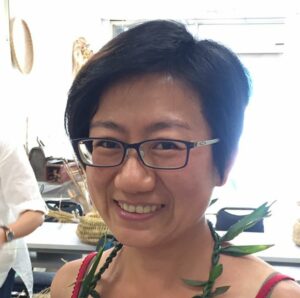
Ya Jung, Lin

Ya Jung, Lin
- Convergence
Taiwan
Ya Jung Lin has been practicing permaculture for more than a decade, mostly focused on urban permaculture. Her practice and experiments mostly happen on an apartment balcony on the 11th floor in a building in New Taipei City, including having an edible container garden, raising quails and keeping bees. With these practices as a start, she also influences her family and gradually extends her influence in the local community. She has also been teaching introductory Permaculture in Taipei area. She will be sharing her urban permaculture experiences in the convergence.
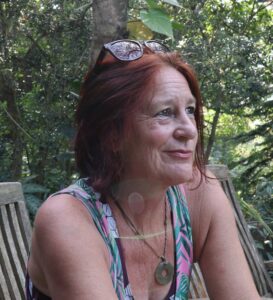
Jenny Quinton

Jenny Quinton
- Convergence
Hong Kong/U.K
Children, Youth and Regenerative Education
Jenny grew up in England and arrived in Hong Kong in 1989 and never left because she fell in love with Lantau Island.
Her wake-up call for the environment happened when she stopped her house nearly burning down due to a vegetation fire started by grave sweepers. After that she joined many green groups and began planting trees.
Jenny set up a kindergarten and then worked as a primary school teacher. She left in 2006 to start Ark Eden Foundation, an eco-education permaculture community and registered charity, and continued working as an Environmental Consultant for the same foundation of 25 schools for the next 10 years, organizing many conferences and events.
In 2011 Jenny did her first PDC and made permaculture the main focus of Ark Eden. After that they ran two PDCs out of Ark Eden in 2012 with Steve Cran and in 2016 with Trish Allen and Daniel Tohill. They were going to run another PDC in 2020 with Joel Glanzberg but covid happened.
Jenny is the founder and Project Designer of Ark Eden and has a full-time team of five and a part time team of over 40 people. They run programmes for children and adults in everything pertaining to caring for the people and the planet.
Ark Eden has now planted over 37,000 native trees on Lantau. Jenny is going to share ‘Children, Youth and Regenerative Education’ in the convergence.
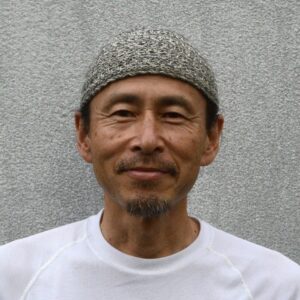
Shunro Yoshida

Shunro Yoshida
- Convergence
Japan
‘Transition Movement in Japan‘
Since learning Permaculture, Shunro has practiced for more than 13 years in the field where he lives. He has also participated building his house which is off grid, producing 100% their energy use. He has been teaching people who come to stay at his place about how to live in a sustainable lifestyle based on Permaculture principles and strategy.
In the convergence, Shunro and members of Transition Japan( all Permaculture practicioners) will share the 16 years of sustainable community building and over 70 initiatives in Japan. Transition is a experiment practice around the world in 50 countries more than 1500 initiatives which people are taking actions to make their community to a resilient place.
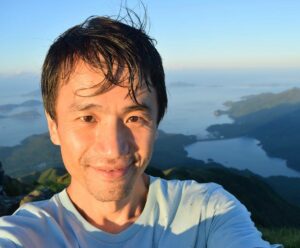
Yip Tsz Lam

Yip Tsz Lam
- Convergence
Hong Kong
Yip Tsz Lam is interested in agriculture. For more than 20 years, he has tried to use Permaculture as the guiding principle, and committed in various tasks such as agricultural management and education. Seeing that Hong Kong as a modern city, agriculture has been neglected for long time, Tsz Lam will be sharing ‘The role of food production in Hong Kong – an analysis from the perspectives of history, nature, people and society.’
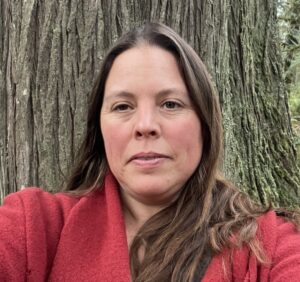
Marisha Auerbach

Marisha Auerbach
- Convergence
American
’Permaculture Education: Online and Hands-on‘
Marisha has been teaching permaculture online at Oregon State University for 13 years. She has been offering hands-on permaculture workshops since 2004. Marisha specializes in food forests, ecology, food production, local economics, nursery work, and community building.
Her presentation will provide a summary of the work that she does with Oregon State University’s online permaculture program and contrast it with the need for hands-on education. What does online learning offer students internationally and how can hands-on experiences provide a compliment? She will share about her experiences and challenges followed by a discussion to hear about what other people are doing around the world. Together, she invites participants to brainstorm on strategies to engage students for connection, climate resilience, and community in both urban and rural areas around the world.
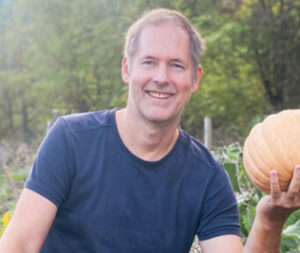
Alfred Decker

Alfred Decker
- Convergence
USA
‘Permaculture and Activism’
‘The Social Microclimate’
‘Teaching For Transformation’ Workshop with Rosemary Morrow
Alfred Decker is an award-winning permaculture designer, a certified educator with the Permaculture Association of Britain, and one of Europe’s leading and innovative permaculture educators. Since his first PDC in 1998 in California, Alfred has been involved with social movements and projects throughout Europe and the Americas. He is the founder of the 12P Permaculture Design consultancy, Permacultura Barcelona and the Forest Gardens project at Can Masdeu; is a co-founder of the Spanish Permaculture Academy (Academia de Permacultura Íbera); and was a member of the European Permaculture Teachers Partnership and the Permaculture Council of Europe. Alfred holds a post graduate diploma in sustainable architecture and renewable energy (Centre for Alternative Technology).
After taking a “Permaculture Teacher Training” (PTT) course with Rosemary Morrow in 2011, he undertook a two year mentorship and later co-facilitated six courses as her assistant, ultimately earning a Diploma in Permaculture Education & Community Development in 2013 through the Blue Mountains Permaculture Institute (Australia). Committed to furthering the PTT course that Rosemary developed in over four decades of teaching experience around the world, Alfred facilitated over 20 PTT courses as lead facilitator, co-edited all three versions of the PTT manual, and organised a successful crowdfunding campaign to develop the platform. Rosemary has asked him to organise the PTT trainings in Europe, and he has developed an online version of the course on the Permaculture Association of Britain’s online educational platform.
His current passion and focus is how permaculture can be useful to refugees and migrants, and how permaculture education can be designed for them as learners…and how they in turn can best share their valuable knowledge and experience with others.
Alfred lives in the old town centre of Berga, Catalunya (Spanish Territory), and is available for educational activities, design work and consulting.
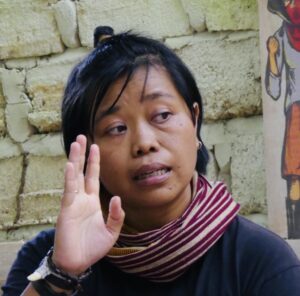
Gusti Ayu Komang Sri Mahayuni

Gusti Ayu Komang Sri Mahayuni
- Conference, Convergence
Indonesia
‘Permaculture as cultural preservation and local food sovereignty in Bali‘
Gusti Ayu Komang Sri Mahayuni (Sayu) is a native Balinese, she has known permaculture since 2003 at the IDEP Foundation And PERMATIL Timor leste. She has been with IDEP for 20 years and currently she is on the supervisory board of IDEP Foundation. Since 2003 Sayu has gained a lot of knowledge and become a senior and master trainer at IDEP and provide a lot of training to communities, local institutions, companies and government. And currently she is also a spokesperson for the slowfood community BIBIT PUSAKA BALI for the preservation of local seeds, and also as a technical coordinator for the Biodynamic Indonesia community. Most of her activities are social activities because she wants more communities to have easier access to permaculture and other knowledge that is very beneficial for farmers and communities.
The topic Sayu is sharing in the IPC Convergence is about how the application of permaculture and dissemination of knowledge (training and local festivals) with the permaculture concept that they carried out with several communities in Bali and various regions of Indonesia became a significant movement in preserving local cultures in Indonesia. Especially farming culture and the culture of maintaining local food. With permaculture, they can again invite young people to understand the concept of traditional agriculture by understanding and studying the appropriate times for farming, seasons and natural elements in traditional agricultural concepts (the wariga concept in Bali or the prey system concept in Java). Permaculture which focuses on local culture can be accepted by many communities in all cultures. In every application of permaculture I always focus on local potential and needs so that I contribute to the preservation of local plants and contribute to local food sovereignty. For the last 2 years, Sayu and the Basebali community in Bali have celebrated local Balinese culture by holding the Wariga Festival by holding a free PDC for local young people in Bali and Indonesia. The Permaculture Course is conducted in more depth on the ethics and philosophy of permaculture.
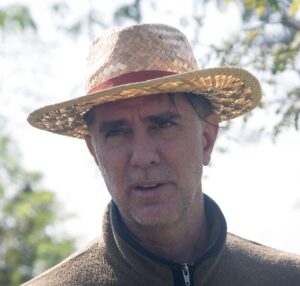
Michael Commons

Michael Commons
- Convergence
USA/Thailand
‘Recognizing and Mainstreaming Forest Gardening as a path to Community, Ecosystem, and Planetary Regeneration‘
Michale completed his PDC with Darren Doherty in 2006. He has 22 years of experience working with ecological agriculture and community development. Michael practices Wanakaset (Forest Gardening and Self-Reliance) with his wife and family for 16 years and has helped coordinating the 3rd Thailand Permculture Convergence, joined and contributed to 2nd, 4th, 5th, 6th and 7th Thailand Permaculture Convergence. Michael joined IPC India 2017 and supporte Loong Choke (Thai farmer elder leader in forest gardening/ bamboo) to join as well and interpreted for him. Michael has helped with a few Permaculture courses, but far more courses on different related areas- such as bamboo, Thai medicine, essential oil production, Wanakaset agroforestry systems, etc. He has now worked for 8 year focusing on regenerative agriculture systems- forest gardening systems in particular.
In his sharing, Michael will present how Wanakaset forest gardening systems, which source from farmer community vision and experience, links to traditional practices of many generations, but also are continually developing, learning and evolving- and with the tie to key economic crops- rubber and coffee being the prominent examples in Thailand. These systems and their recognition by farmers, market partners, and other agencies have been able to and continue to expand and spread, with increasing regenerative impacts at farm, community, local economy, watershed and bioregional levels.
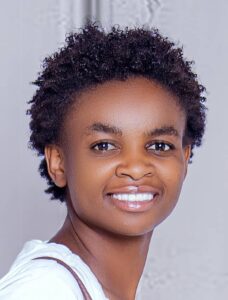
ANSIIMA CASINGA ROLANDE

ANSIIMA CASINGA ROLANDE
- Convergence
Congo
‘The impacts of permaculture in refugee camps’
ANSIIMA CASINGA ROLANDE is a permaculture trainer promoting community resilience in refugee camps through permaculture design training, women empowerment, arts, permaculture for children in schools and especially usage of the the permaculture principles and ethics in all the other aspects of life. She has hosted as a trainer and assistant trainer in 12 PDCs around Uganda, in refugee camps and host communities, she hosts an open space for women conversations about topics that matter including menstruation, reproductive health, financial security, food and nutrition, permaculture …
ANSIIMA CASINGA ROLANDE founded FOLONA a registered community based organization that allows her to implement the permaculture projects legally, and she works with 6 other volunteers.
In her talk, she will discuss her six-year experience as a refugee, how she came to learn about permaculture and began training it in various ways, her journey, the difficulties she faced and how she overcame them, and above all, the improvements permaculture has brought about in her camp and the other camps where she has trained it. And how it can still make a difference in marginalized communities.
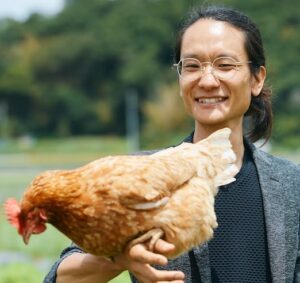
Hikaru Ishii

Hikaru Ishii
- Convergence
JAPAN
‘Tiny Tsujido – Redesigning suburban neighborhoods for intergenerational and regenerative living‘
Hikaru Ishii a 33-year old living in Tsujido, Japan. He is the 13th generation landowner in his hometown. Every year he joins the local summer festival playing the Japanese drum and flute as it connects him deeply to the town.
Ever since he was a kid, he has always loved nature and animals – especially amphibians. In university, Hikaru majored in landscape ecology where he researched amphibians and insects in the Amami islands just north of Okinawa. After his studies, he obtained his Permaculture Design Ceritificate from Permaculture Center Japan. And he has also been trained to become an organic farmer for one year at Niconico-Nouen, a local organic farm.
In addition, for the last 6 years and a half, he has led a community garden for 30 families and in the last 3 years Hikaru organized community rice fields in the Tsujido area as well.
Many landowners in the Tsujido area succumb to building large apartment complexes as a way to decrease their inheritance tax. In his opinion, these large apartment complexes take away from the local landscape as well as habitats for other species. As a landowner he is interested in exploring alternative ways to make his hometown more nature-centered and regenerative using principles of permaculture.
About Hikaru’s sharing:
Tiny Tsujido is an experimental 9-family village located in the suburbs of Tsujido that opened its doors in 2023. This project was led by Hikaru Ishii, the 13th generation landowner with the vision “a life connected to the earth, created by loosely gathering together in this land” based on a permaculture philosophy. They aim to re-shape the townscape and create a landscape 100 years from now on.
Landowners in Tsujido are put in a challenging situation where the legal pressure of Japanese inheritance tax law and the cultural gravitation towards single family households incentivizes construction of large apartment complexes in order to maximize profit. While this minimizes losses for the landowner, the development of these apartment complexes inherently destroys biodiversity as well as the sense of local community.
Rather than taking the standard route, Hikaru Ishii spent 7 years conceptualizing and realizing his vision working closely with local communities, architects, and landscape designers to build an alternative form of suburban land development. For example, there are vegetable garden, fruit trees, chickens, water well, rainwater tank, compost, and common house. And there are many saving local trees which was close to be cut down in a few years Trees could lead birds and insects connecting to our mental health, according to academic journal. Instead of asphalt, parking lot was made from organic materials including straw, fallen leaves, bamboo coal, and stones for microbiome to live by many people working together including kids also.
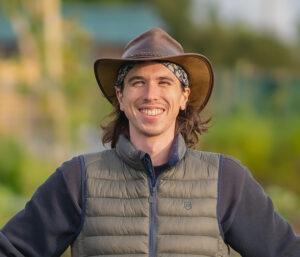
Shane Hatton

Shane Hatton
- Convergence
IRELAND
‘Growing in Bosco’s Boots’ (Film screening and Q&A)
Shane has been studying permaculture for about 15 years, applying what he has learned to his garden in Ireland. In 2020, him and his wife set up ‘Bosco’s Garden’, named in memory of his late brother who also shared his interest. Over 4 years they transformed an empty field into a market garden and food forest, complete with 3 wildlife ponds. They began selling their produce from a farm stand and supplying local restaurants, giving garden tours and teaching people about the methods they were using to grow food sustainably and in balance with nature.
Shane will be screening his film ‘Growing in Bosco’s Boots’ which chronicles the creation of our no-dig permaculture market garden/farm in Ireland and followed by a Q&A and discussion on using permaculture techniques to grow food commercially.
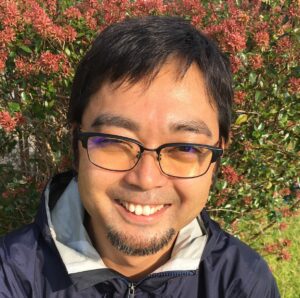
Osamu Akashi

Osamu Akashi
- Convergence
JAPAN
‘Practices of Urban Permaculture in Japanese Universities: A Case Study at Musashino University’
As a faculty member at a university in Tokyo, Osamu teaches permaculture to students. Together with the students they have created a permaculture garden on the university campus to work on regenerating nature and building community. Additionally, they have established and manage a community garden in the local area. He is researching the impact of community gardens on social capital and well-being.
Osamu Akashi will be presenting their case with 4 other members, Emiko Tanaka, Nao Susuki, Leo Murase, and Riko Katahira. Their presentation introduces the permaculture initiatives at Musashino University, located in the heart of Tokyo. A rooftop community garden (Ariake Rooftop Commons) is managed through the collaboration of students and faculty staff, aimed at regenerating nature and community. Designed according to permaculture principles, it includes a natural vegetable garden, food forest, composting, and beekeeping. The main activities include a weekly open day and events open to the local community, managed under the principles of Earth Care, People Care, and Fair Share. In addition to holding events such as garden experiences and workshops, the space has become a place where community members can connect and be themselves. A study on the social capital and well-being of community members showed improvements in both areas compared to before their participation in the community garden. The community garden has significantly contributed to regenerating human connections and nature in urban settings. Based on these findings, efforts to establish community gardens within local communities have begun. Additionally, the university has started teaching permaculture as part of its curriculum, with students who have taken the course beginning to practice and spread permaculture activities.
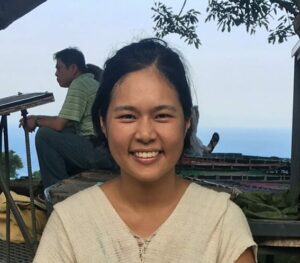
Emily Lin

Emily Lin
- Convergence
TAIWAN
‘In the Edges: An Ethnography on Pigeon Pea and Others in a Paiwan Grandmother’s Foodscape’
Emily first learned about permaculture during her internship with Earth Passengers in 2009. She enjoys building with earth and has some experience with bamboo and thatched fibers.
She completed her PDC at OAEC in 2019 and has been living on a 0.6-acre sandy lot since 2020.
Emily is academically trained in political economy and cultural anthropology. She is a freelance translator, project manager, and sourdough baker. In 2022, Emily completed her master’s degree in Austronesian Studies at National Taitung University, a cultural anthropology program. Her thesis, “In the Edges: An Ethnography on Pigeon Pea and Others in a Paiwan Grandmother’s Foodscape,” gained multiple awards and was published in 2024.
In her talk, she will share ideas about edges, precarity, and multi-species assemblage in the context of the Indigenous Paiwan People.
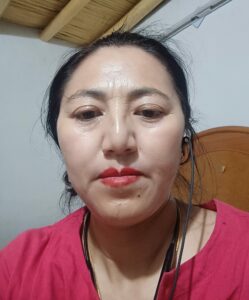
Jigmet Yangchan

Jigmet Yangchan
- Convergence
INDIA
‘How Permaculture transformed the livelihood of farmers in cold Arid region – A case study’.
Jigmet Yangchan has been working in field of agriculture sector as a scientistsof Soil water Engineering. She completed her PDC with Rosemary Morrow and has been teaching Permaculture to women in Ladakh.
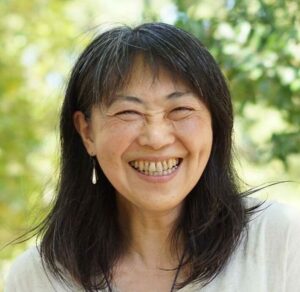
Koyama Mikae

Koyama Mikae
- Convergence
JAPAN
‘The work that reconnects’
Koyama Mikae has been trained in Permaculture through several design and advanced courses provided by Permaculture Center Japan since 2008. She is also a member of Transition Fujino and Transition Japan, and later on since 2013 she has been involved in ‘The Work That Reconnects’. She is a staff and a teacher of Permaculture Center Japan.
In her sharing, she will be introducing how she is influenced by ‘The work that reconnects’, which was proposed by Joanna Macy. It is based on deep ecology, systems thinking, Gaia theory, spiritual traditions (particularly Buddhist and indigenous teachings), and group wisdom.
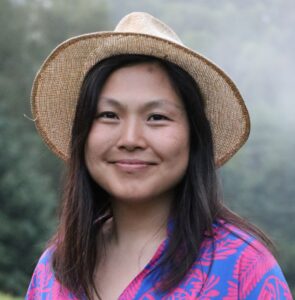
Skye Jin

Skye Jin
- Convergence
Danmark
Online Sharing:
1. Life Design with IKIGAI translated to permaculture / 2. Gardening is Activism: decolonising art & permaculture in gardens commons / 3. From Selfcare to Groupcare: vulnerability as the path to inclusion and safer spaces
Skye has the Diploma in Applied permaculture from Permaculture Association Britain and works as an artist, permaculture designer, activist and educator. She is a specialist in SOCIAL PERMACULTURE and LIFE DESIGN. Since 2016 she has re-designed her own life with Permaculture + IKIGAI and dedicated her work to co-create and nurture regenerative cultures. Skye has been in the board of the Danish Permaculture Association Permaculture Denmark, where she is still active in the education group and PR group as editor of our magazine PERMAKULTUR. See more here: https://www.skyejin.com/permaculture-design-teaching
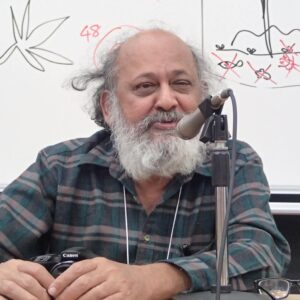
Ardhendu Chatterjee

Ardhendu Chatterjee
- Convergence
India
Online sharing :
‘Community managed forests to support livelihoods and regenerate ecosystem‘
Ardhendu did his full PDC courses under Rosemary Morrow and Chris Evans in Auroville,TN India in 1991-2,and has worked as International Voluteer in Cambodia,1994-96. He has attended IPC London and India.
In his sharing, he will be sharing about forest based soil regeneration by indigenous people communities in Birbhum district West Bengal from 2020-2024. This project features mixed tree and shrubs plantation by rural communities. It is an initiative supported by an NGO, with partial wages paid by the Government through local authorities.
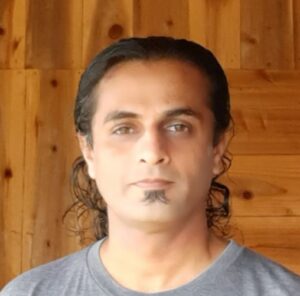
Rakshith Kuttappa

Rakshith Kuttappa
- Convergence
India
Workshop:
‘Zone 00-Finding my “Mojo” after a PDC’
He is a.k.a Kuttss. He has worn multiple hats in search of himself and has pursued Technology research, Organization Development, Leadership Coaching, Large-scale change interventions in communities, Systems design thinking, Journalism, Outdoor Education, Wilderness adventures in remote corners of the world, etc. To complete the loop of his search, he got back to his roots of Permaculture upbringing, he became a certified design practitioner and educator under the mentor-ship and pioneers of Permaculture like Narsanna Koppula, Rosemary Morrow, Tom Kendall, Lusi Alderslowe, Starhawk and other on-ground practitioners. He is currently involved in many design assignments in different climate bioregions. He has facilitated numerous Permaculture courses. His key interest areas in Permaculture are Restoration & Regenerative systems, System modeling, Biomimicry, Social Permaculture, Design for Disaster Mitigation, Hydrogeology and spring shed management, Rural development, Edible School Gardens, and Children/Parents in Permaculture initiatives. Some of his other work has been to enable individuals to lead and teach outdoor experiential education courses, enabling organization leaders to facilitate team excellence through Leadership coaching and mentoring social entrepreneurs to believe in their calling for the greater good of the planet. He is actively involved in mentoring non-profits in transformations and pushing their potential awareness to real tangibles.
During the IPC Convergence, Kuttss will be sharing in the form of a workshop about ‘Zone 00-Finding my “Mojo” after a PDC’. The Permaculture Design Course (PDC) represents a new dawn of endless possibilities. It is a catalyst for personal transformation, prompting the emergence of unique pathways for each participant. A pivotal inquiry remains: “How does one maintain this growth amidst the myriad of internal and external adversities?” This workshop delves into the synergy between permaculture and inner development objectives, aligning with the Sustainable Development Goals (SDGs). Recognizing that these goals mirror each other, we will examine the personal micro-climates that influence our lives. Spanning approximately 2 hours, the workshop will be an interactive journey through diverse processes, system models, and inquiry tools such as the World Café, Future Search Appreciative Inquiry etc. Together, he will lead the participants to lay the groundwork rooted in the ethics and principles of permaculture.
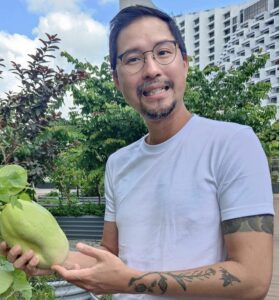
Bjorn Low

Bjorn Low
- Conference, Convergence
Singapore
‘The emergence of a new agriculture paradigm- Singapore‘
Bjorn has created the ‘Edible Garden City’ project, designed and installed close to 300 food gardens in Singapore, many of these were based on permaculture principles particularly the use of food forest methodology.
The rapid territorialization of Singapore, a land-scarce island-state, created an urban landscape marred with vertical colonies, devoid of community interaction and without food sovereignty. Singapore’s food future stood in stark contrast to the self-sufficient agrarian societies of Southeast Asia. Shifting demographics and a rapidly aging population raise new societal issues in the 2020s: isolation and regression in equity and cohesion among the pioneer generation. These challenges require a new set of environmental design and social engineering policies and projects.
This sharing will provide an environmental history of Singapore’s five-decade-long “Garden city” policies as an overture to an analysis of how a shifting geo-political ecology in the Anthropocene age has helped the landscape metamorphize into an “edible garden city”. The inquiry will help create a new positioning for a self-actualized food collective that delivers not only food security and sovereignty but also equilibrium and balance to the current ills of vertical colonies. Regenerative foodscapes and restorative agrarian biosphere can play a part in increasing healthy and productive longevity, promoting intergenerational bonding, and supporting a community for all ages.
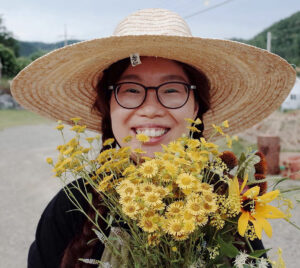
Hee-Jeong Yu(Soran)

Hee-Jeong Yu(Soran)
- Convergence
Korea
‘Rice farming and carbon sequestration in Asia, with a focus on Korea‘
Soran is the founder of the Transition Village Movement in Korea. She works on designing transition Town Movement in Korea through permaculture.
Soran created the Korean School of Permaculture and started teaching PDC courses and founded the Korea Permaculture Network to connect permaculture ecosystems and permaculture designers in Korea.
About her sharing: In Asia’s agricultural landscape, rice farming is a major source of methane emissions. The more food we produce, the more it contributes to the climate crisis. Rice is an important food in Asia, including Korea. However, in previous societies, rice farming has played an important role in increasing food self-sufficiency and preserving the environment. In this article, Soran will propose a Korean permaculture farming method that can protect the future of rice, which is being blamed for the climate crisis.
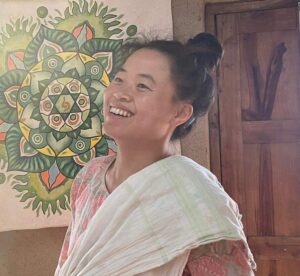
Claire Lin

Claire Lin
- Convergence
Taiwan
‘The Menstrual revolution from the Himalayas, Nepal’
Claire attended the PDC program in the end of 2012, and based on what she learned from the Permaculture concept she started a social enterprise called Dhartimata Sustainable Workshop. The Workshop studio is located in the beautiful permaculture learning farm ,Hasera Agriculture Research and Training Center in a mountainous village, outside of Kathmandu , Patalekhet ,Kavre, Nepal. Since the establishment of the workshop Claire has been bringing volunteers, students and people who are interested in permaculture from Taiwan to Nepal.
The main product of Dhartimata is ‘Lovelady eco-friendly pads’ and they are hand-made by local Nepalese women with natural materials at our workshop. Dhartimata is committed to developing products that are friendly to the environment, and support women, and their families. Dhartimata hope that their enterprise can support the employment of these rural Nepalese women and help to create a more sustainable future.
Claire and Mithu from Hasera Farm will be sharing the story of ‘The Menstrual revolution from the Himalayas, Nepal’.
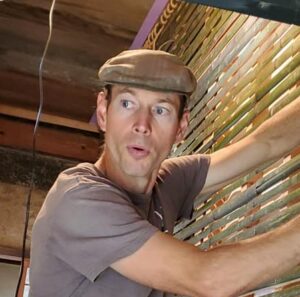
Kyle Holzhueter

Kyle Holzhueter
- Convergence
Japan
‘Natural Building in Japan: Past and Present/Workshop: Yakisugi-Charred Cedar Boards’
Kyle works as a builder, researcher and educator specializing in natural building materials and sustainable systems such light rice husk lime insulation, natural plasters and energy efficiency. He is a graduate of the Kyoto Plastering Institute and the first westerner in Japan to pass the highest Japanese National Plastering Exam. He also has a PhD in Bioresource Sciences from Nihon University where he researched the hygrothermal environment of straw bale walls and building practices to control moisture. In 2017 Kyle founded Permaculture Center Kamimomi, a Permaculture demonstration and education site in Okayama, Japan.

Boniface Gomes

Boniface Gomes
- Convergence
Bangladesh
’Bangladesh Disaster Adaptation Techniques (DAT)‘
GROWTH AND OUTCOME OF ECOVILLAGE AND PERMACULTURE VILLAGE IN BANGLADESH
Boniface Gomes participated in Permaculture Design Course, held in Sri Lanka in 2003, and Ecovillage Design Education, held in Australia in 2005. He also participated in various National and International Conferences, Seminars, Workshops and Networks’ Meetings and Gatherings in different countries (Scotland, Australia, Spain, Senegal, Sri Lanka, Thailand, India etc.) for learning, experiencing and sharing this hottest issue.
He believes that ecovillages and Permaculture are the main options for climate change adaptation and mitigation, disaster management which will save community people, country people as a whole the human being, domestic animal, creatures, plants, earth, water and air from this greatest danger.
So, Bangladesh Association for Sustainable Development (BASD) started working on Permaculture Designing and establishing ecovillages in different parts of the country. Boniface Gomes will illustrate the gradual growth and initiatives of these programs and its outcome.
During the last two decades, BASD developed some of the following publications and Audios, Videos and News which are available and visualized in Website, YouTube, Books, hard copies, brochures etc.
1. WWW.basd-bd.org
2. Bangladesh Ecovillage Design and Environment Development – Book in Bengali
3. Permaculture Design Module – Book in Bengali
4. Ecovillage Design Module– Book in Bengali
5. Earth Restorer’s Guide to Permaculture – Book in Bengali
6. Ecovillage and Permaculture Design – Brochure in Bengali
7. Successful completion of BASD’s 30 years – News in English –
https://www.youtube.com/watch?v=k49rvalNsVc&t=918s
8. Case Study by Gaia Education in International News –
9. BASD’s Facebook: Basd Ngo, Link:
https://www.facebook.com/profile.php?id=100075518733587
10. BASD’s Facebook Page: BASD, Link:
https://www.facebook.com/profile.php?id=100085785193913
11. BASD’s You Tube Channel: BASD You Tube Channel, Link:
https://www.youtube.com/channel/UCWNLm13ERUirFBcfl7MOPww
12. BASD’s Activities – Pictorial: https://www.youtube.com/watch?v=Rc45H_Jqld4&t=7s
13. Akti bari akti khamar by BTV : https://www.youtube.com/watch?v=uGRN-x5VuxQ&t=141s
14. Hope of life, 2013: (Capacity building and community empowering, 2013)
https://www.youtube.com/watch?v=C5t9y6tTXQM&t=178s
15. Ecovillage and Permaculture Design by WVB
https://www.youtube.com/watch?v=dA3x-llfV6Y&t=118s
16. EDE in Bandorbon : https://www.youtube.com/watch?v=dA3x-llfV6Y&t=92s
17. Shabolombi by BTV : https://www.youtube.com/watch?v=uGRN-x5VuxQ
18. In the line of life (CC & Adaptation)
https://www.youtube.com/watch?v=abIKRUA9ScM
19. Permaculture Practice by Rohinga Refugees in Bangladesh
https://www.youtube.com/watch?v=ZDIerZrEUDc
20: Bangladesh Refugee Permaculture – https://www.youtube.com/watch?v=RA77RTJ5z-8
21. Earth Restorer’s Guide to Permaculture, written by Rosemary Morrow, 514 pages, translated in Bengali.
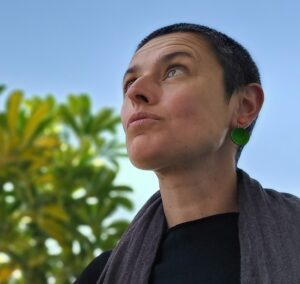
Mamen Artero

Mamen Artero
- Convergence
Spain
‘Schoolyards x Climate change. Permaculture aply to schools to improve resielience of cities.‘
Mamen Artero is an architect by ETSABarcelona-UPC (2004), specialized in sustaineble-building and permaculture. Postgraduate degree in cultural management by the UB (2007-08). Postgraduate in Safety and Health in Construction by the ETSEIB (2010-11). Co-director of the Rabat & Artero architecture office specialized in rehabilitation and urban planning (2005-2012) and co-founder of El globus vermell, a group of architects founded in 2008 with the aim of empowering people to create healthier and more sustainable built environments.
Her areas of expertise are: Architecture and permaculture Design, Cultural Events Management, Eco Building, Project management, Long Life Learning Education, On-site expertise
For the past 7 years, She has been coordinating patios x clima project (schoolyards x climate change) in Spain at national level. The aim of the program is bring nature to learning environments through permaculture tools, working with administrations or school-local communities.
She will share her experience and knowledge about greening the city throught the schoolyards. This project and all its different actions aim to establish a framework of action and reference based on the renaturation of school spaces, at the legal-administrative level and in practical issues of community, pedagogical and design action.
The redesign of the playgrounds and school spaces in a participatory manner has the objective of greening them and giving rise to learning processes within the center, integrating climate action into the educational curriculum. They are collective processes that reinforce the active participation of citizens and contribute to improving environmental conditions at the urban level. The introduction of nature in the city is key to mitigating the effects of climate change, while maintaining the biodiversity of the ecosystem and increasing its resilience.
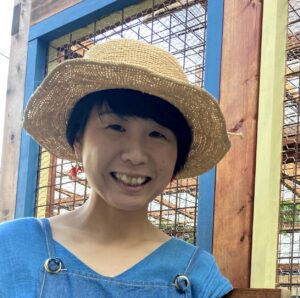
Wakana Kawamura

Wakana Kawamura
- Convergence
Japan
‘Creating A Forest Garden in the suburbs of Japan‘
Wakana Kawamura
Wakana Kawamura is an Illustrator & permaculture designer. She was born in Hyogo Prefecture, Japan, in 1984. After working as a nurse upon graduation from the university, her fascination by American music & art brought her to the west coast of the USA in 2008. In the USA, she became passionate about plants and began learning landscape design. While studying botany and design, she encountered Permaculture. She attended “Urban Permaculture Institute” in San Francisco and studied urban permaculture centered around the city.
After returning to Japan in 2016, she became a part of “Permaculture Design Lab” that focuses on making edible forests in Japan. While working as a landscape designer, she also started working as an illustrator. Currently, she explores Sub-urban permaculture living at Hamamatsu City in Shizuoka Prefecture. She loves invisible creatures such as fermentation bacteria and soil microorganisms and colorfully draws the celebration of “life” that she encounters in her daily life.
About the Forest Garden:
It has been 10 years since the establishment of the Forest Garden on abandoned farmland in Hamamatsu City, Shizuoka Prefecture in Japan. Forest garden is located right next to a residential area has become a place that provides a home for many living creatures.
It has become an essential place not only for living things but also for us humans. Because it is located close to a residential area, Forest Garden has more opportunities to show its permaculture models to many people.
In Japan, permaculture tends to be only known to a few people, but our Forest Garden team actively goes to local people, schools, community centers, parks, etc. and holds lectures and talks with them. We hold events and practice permaculture so that many people can use the system in their daily lives.
They believe that applying permaculture in daily life is necessary for many people to increase their resilience and believe that it’s really important to check how we connect with nature in our daily lives, especially in the suburbs of cities. At Forest Garden, the team hopes to provide a way to enjoy and connect with nature while experiencing delicious food from our Forest Garden.
Personally, Wakana Kawamura works as a “permaculture illustrator,” and she think one of their strengths is that they communicate permaculture to many people through illustrations. Forest Garden has a lot of colorful art, and they are happy to let you enjoy the visuals.
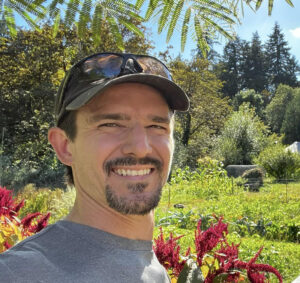
Matt Bibeau

Matt Bibeau
- Conference, Convergence
USA
‘Designing Natural Play Places for Children‘ (Workshop and Presentation)
Matt Bibeau, MSEd, has been engaged in permaculture, nature and garden-based education for 20 years and has led efforts to develop outdoor learning programs and environments at public schools and bring nature camps and alternative schools to forest and farm settings from Portland to Japan. Matt enjoys teaching adults as well as children and believes that a commonly missing tools from the permaculture practitioner’s toolbox are expressions of wonder and a passion for playfulness. Matt lives and teaches at Jean’s Farm, a permaculture education farm in Portland, and is a Board member of the Permaculture Institute of North America.
About Matt’s presentation and workshop:
Children use the embodied experience of play as their foundation for learning that will stay with them for the rest of their lives. So when we want to convey permaculture and a love of nature to children, we don’t need to say too much! Instead, we can focus on facilitating playful, sensory-rich activities in outdoor learning environments that we have enhanced using permaculture design so that nature is the primary teacher and we are the mentors and facilitators.
In this presentation, together with the participants, Matt will explore permaculture principles for nature-based learning, as well as methods and techniques for designing and implementing natural play places for children that are conducive to developing skills that are important in life and essential in permaculture.
Then, for the workshop, we will enjoy activities that help us reconnect with our own inner child so that we can rediscover our own nature-based passions. From here, we will be better prepared to design, implement and utilize nature play places wherever we live and help children explore interests and discover passions. As a final activity, participants will apply their learning to help improve the children’s area of the Convergence site.
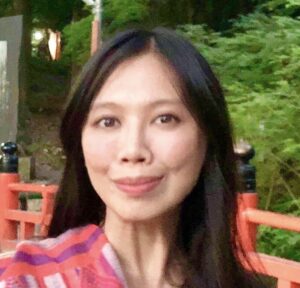
Sarah Queblatin

Sarah Queblatin
- Convergence
The Philippines
‘Design Principles from the Edges‘
Sarah Queblatin is the Founder of Green Releaf Initiative in the Philippines working in disasters, displacement, and development. She holds a merit diploma in permaculture from the Blue Mountains Permaculture Institute where she also studied Permaculture in Development particularly in precarious places. In 2021, Sarah drafted the beginnings of a proposal for Permaculture Principle 0, to honor the local wisdom and traditional ecological knowledge and stewardship of a place before the first principle of “observing and interacting.” She is currently drafting Principle 13 to integrate practices for designing for resilience and regeneration in times of increasing vulnerability from the polycrisis. Her life work is in restoring and restoring and re-storying narratives of place and belonging and is now weaving her love for the arts and culture with place based regeneration through her passion project, Living Story Landscapes.
She finished her Advanced Certificate Course in Permaculture at Aranya Agriculture Alternatives with Guilda Permaculture. She completed her PDC from Green Warrior Permaculture and the Philippine Permaculture Association. Sarah is a founding member of Permaculture for Refugees, a Global Ecovillage Network Ambassador, and member of Re-Alliance.
About Sarah’s presentation:
Permaculture is a movement founded on 12 design principles inspired by how nature works. In the backdrop of the growing polycrisis, this session is inviting over 20 million practitioners of this design practice to explore the evolution of the principles to adapt to the current and emerging challenges the world is facing today. Since nature is rapidly evolving in response to the radical changes taking place, so must the way we design with it, especially as part of it. Join us to collectively define two new proposed design principles and practices. The first is Principle 0, initially proposed “to honor traditional ecological knowledge and indigenous wisdom in a place”as an attempt to address the need to decolonize permaculture. The second is Principle 13, aimed at how permaculture assists in adapting to the volatile, uncertain, complex, and ambiguous (VUCA) world facing climate emergency, biodiversity collapse, security issues, displacement, among other systemic challenges. Lastly, the session aims to update the existing 12 design principles with practices that are relevant to the challenges we are facing today and the future to come.
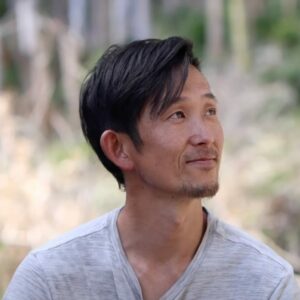
Nobuaki Kita

Nobuaki Kita
- Convergence
Japan
‘TERRA -green planet’ (Screening)
A permaculture documentary that began its screening journey in Japan in April 2023. Filmed during a global pandemic, it follows a family with their one-year-old son as they travel across Japan and the West Coast of the USA, capturing stories of people who find joy and purpose in giving back to the Earth. The film spans over 30 locations, offering a vision of hope and sustainability through the lenses of permaculture.
trailer: https://vimeo.com/911191870
(2023 / 102min / Language: English & Japanese)
Nobuakai Kita has been a permaculture practitioner since 2019.
He has created a permaculture homestead with his wife Kei in Okayama, Japan. It is a totally off-the-grid, self-builded tiny houses with off-grid system, a workshop, chicken sheds solar-cookers and everything they need for self-reliance.
In the convergence, he will be sharing his documentary and leading a discussion with the audience.
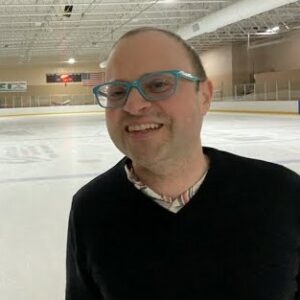
Nir Krakauer

Nir Krakauer
- Convergence
USA
‘Climate data for permaculturists‘
In Nir Krakauer’s academic career, he has extensive experience in leading and publishing research into climate change and its impact on streamflow, agriculture, biodiversity, and health both in the USA and globally. He has worked with scientists and engineers, educational institutions, nonprofit groups, and government ministries from New York City to South Asia to monitor climate change and vulnerability and support and evaluate resiliency measures, including a trial of drip irrigation by smallholder farmers in three districts of Nepal. He has developed new tools and methodologies for assessing climate risks and making more accurate predictions, and contributed to the development of climate science and water resources engineering by convening conferences and editing journal sections and special issues. He has also mentored and introduced to research dozens of students from high school to doctoral levels, and developed and taught courses and training modules on earth science research methods. I developed a new course for my department on Sustainability of Infrastructure that takes a holistic approach to introducing ecological thinking, including permaculture concepts, for engineering students. His interest in permaculture goes back to college, when, while doing research in ecology, he read works by Bill Mollison, David Holmgren, Dave Jacke, and others. In New York City, he has been part of urban and peri-urban permaculture initiatives under the Green Phoenix permaculture umbrella, volunteer at the community garden on his street, and am promoting resource conservation at his college. He has also been active in promoting renewable energy as a longtime volunteer for the American Solar Energy Society, whose annual conferences he helps organize.
About Nir’s presentation:
Climate factors are in essential consideration for all permaculture designs. As global warming as well as misinformation campaigns accelerate, uncertainty over what to plan for continues to grow. Vast amounts of climate data that have been generated and are available through national and international agencies, but figuring out what’s available is a daunting text for most of us. He will draw on years of experience conducting climate research to give listeners free graphical tools for accessing climate information from credible sources and checking for different hazards, including hardiness zones, high winds, flooding, water storage requirements, and sea level rise.
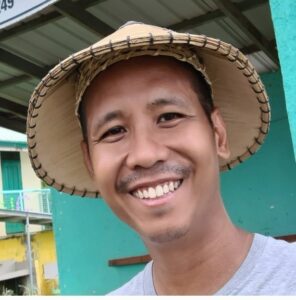
Ben Francia

Ben Francia
- Convergence
The Philippines
Cultivating Diversified Permaculture Enterprises for a Sustainable Future
Albert (Ben) Anthony Z. Francia is a permaculture practitioner based in the Philippines. He owns, designed and manage, Habilin Farms. Aside from being a permaculture site, the farm is also an agritourism destination and a farm school accredited by ATI and TESDA. He has been practicing permaculture since he started the farm in 2020 but only took his Basic PDC (from the Philippine Permaculture Association) and Advance PDC (Oregon State Universition – online) in 2022. Since then, he has been conducting permaculture workshops and farm tours in Habilin. His goal is to help spread the teachings of permaculture in the country by starting from his local community.
About his presentation:
This talk will explore the concept of diversified permaculture enterprises and their role in fostering a sustainable future. The focus will be on how integrating diverse agricultural practices and business models can enhance ecological balance, economic resilience, and community well-being.
The talk is intended for farmers, agricultural entrepreneurs, environmentalists and sustainability advocates, policy makers and educators, students and researchers in environmental sciences and agriculture, members of the general public interested in sustainable living and permaculture
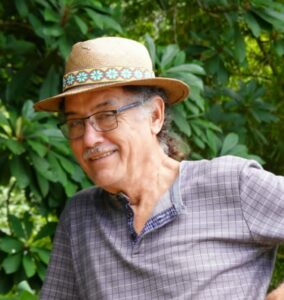
Juan Nelson Rojas

Juan Nelson Rojas
- Convergence
Salvadoran/Australian
’The 20 Natural Directives Cycle‘
Juan learnt and start practicing permaculture in Australia in the 90’s. In 1993 he moved to his birth country to help in the rural reconstruction of a post-war period with a basic permaculture knowledge aquired in the temperate and subtropical regions down under. By 1994 he joined a movement of peasants named “farmer to farmer”, an horizontal learning agroecological methodology. In 1998 Juan and a Guatemalan Permaculture Instructor delivered the first Permacuture Design Course in El Salvador to a group of 22 students from Central America.
In 2000 he was awarded the Permaculture Diploma by the Permaculture Institute led by Bill Mollison. By 2002 the Permaculture Institute of El Salvador and the Mesoamerican Permaculture in Guatemala were created as non profit legal institutions to serve the purpose of teaching grassroots organizations.
Juan has applied the permaculture knowledge in different situations such as:
-Developing his own home habitat
-Retroffiting with Permaculture a Farming cooperative community, hit by a 7.3 earthquake in 2001.
-Teaching Certified Permaculture Design Courses at a continental level in America.
-Developing a permaculture curriculum suitable for indigenous tropical bioregion.
About Juan’s presentation:
The life cycle of 20 natural energies or elements in the Mesoamerican Native’s Cosmovision is fundamental to understand by the human being interacting with nature.
Permaculture design deals with natural directives or principles, to get to understand them by following their presence in the intervened ecosystem is the key for total success. Therefore this workshop aims to provide the designer with an ancient conception of time and space synergy.
Cooperation rather than competition in today’s challenge from global warming is a must.
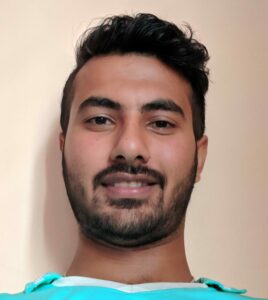
Balkrishna Dahal

Balkrishna Dahal
- Convergence
Nepal
‘Ancient roots of Permaculture: Nepal’s Case‘
Balkrishna Dahal is an agriculture graduate (B Sc Ag in 2020 and MSc Agricultural Economics in 2022). He was a permaculture graduate in 2019 from HASERA, Nepal and Permaculture Design Course Professional Certificate in 2023 from OSU, USA. He has been engaging with small farmers for their capacity development on permaculture adoption and also with commercial business for sustainable commercial farms development.
About his presentation:
“Ancient Roots of Permaculture: Nepal’s Case” delves into the historical and cultural foundations of permaculture in Nepal, highlighting the alignment between traditional agricultural methods and modern permaculture principles. It underscores the sustainable farming practices that have been integral to Nepalese agriculture for centuries.
The focus is on Nepalese farmers and indigenous communities who have practiced these methods over generations, as well as contemporary permaculture enthusiasts and researchers who study and advocate for these ancient practices.
Set in Nepal, a country with diverse ecological zones from the Himalayan mountains to the Terai plains, the article showcases the rich agricultural heritage across various regions. It traces the roots of these practices back to ancient times, emphasizing their enduring relevance and adaptation over centuries.
Traditional Nepalese farming methods such as crop rotation, organic fertilization, integrated pest management, and water conservation are explained as mirroring permaculture principles. Specific techniques like terrace farming to prevent soil erosion, diverse crop cultivation for soil fertility, and community-based resource management are discussed.
The article’s core message is to illustrate the effectiveness and sustainability of these ancient practices and advocate for their integration into modern permaculture movements. It aims to show that traditional Nepalese agriculture offers valuable lessons for contemporary sustainable farming globally. Overall, the article is a tribute to Nepal’s agricultural heritage and a call to incorporate ancient wisdom into current and future sustainable practices.
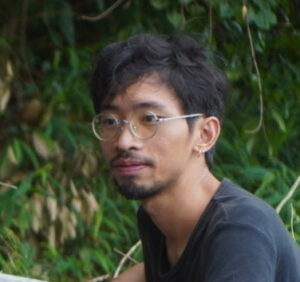
Loky Leung

Loky Leung
- Convergence
Hong Kong
‘竹、泥、人:營造香港南涌生態社區
‘Bamboo, Mud and People: Building an Eco-Community in Namchung, Hong Kong‘
Loky is an architectural designer and builder with a focus on rural development, participatory design process, and natural building. He worked in an architectural office for 6 years and came across Permaculture around 2018. Since then, he commits to a more holistic approach to sustainability. He has completed natural architecture in various scale including bamboo structures as community kitchen, mud ovens, mud stoves, and public furnitures. In 2018, he joined the first eco-community in Hong Kong, the Partnership for Nature Education and Conservation (PNEC). As a core member and education coordinator of PNEC, he is closely involved in the community building process: co-creating core values, establishing organizational structure, facilitating group conflicts, designing and conducting experiential learning programmes. Recently, he founded “zuk collective” with other crafts makers to promote the use of natural materials in the architectural industry.
In the convergence, Loky will try to unpack our approach to the global ecovillage movement by sharing the making of the PNEC community in Hong Kong, as well as the fun, joy and struggles involved.
The birth of the PNEC eco-community originates from the land conservation movement in Hong Kong. Since 2013, a group of activists has come to the rural village of Nam Chung to curb the urban sprawl by re-cultivating abandoned farmlands. At present, PNEC has grown into a community of a dozen live-in residents and 40 more members, promoting ecological farming, food education, natural architecture and eco-tourism. Over a decade, how do we evolve from an ‘organization’ to a ‘community’? Growing up in a market-driven and highly competitive society, how do we (re)learn to live and work as a collective? How do we reconnect with the Land to cultivate love and trust, to help reconcile our relation with the world and oneself? These are the questions that will be addressed.
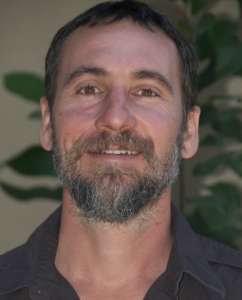
Jeremiah Kidd

Jeremiah Kidd
- Convergence
USA
‘Permaculture & Syntropic Agroforestry Business Synergy – How to produce food, fiber, fuel, oils, habitat and right livelihood while generating a profit and sequestering carbon‘
Jeremiah has been been self employed in Permaculture for over 30 years with two businesses in New Mexico and consulting and implementation around the world. He also has two businesses in Kenya, one a regenerative agriculture business (ForestFoods described below) and an eco-lodge. His passion is to help, the earth, plants, soil, animals and people all at the same time.
Forest Foods was founded in 2021, to be an example of a profitable regenerative agriculture business based on the ethics of Permaculture. Since then Forest Foods has started two productive farms at different ecotones in Kenya with plans for wide expansion throughout the region. Forest Foods has also designed and created post production facilities and sell directly to consumers, restaurants and to a locale distributer that delivers with electric vehicles.
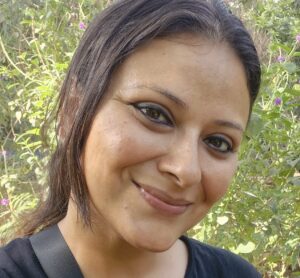
Manasvini Tyagi

Manasvini Tyagi
- Convergence
India
‘Community farm and its impact(s)‘
Manasvini Tyagi wants to share her own story woven in the community farm that she joined as a volunteer and run it single handedly. It’s within the country’s biggest Cancer institute. The institute is 12 years old now and has beautiful stories and impacts around people care, earth care, fair share and so much more.
Manasvini Tyagi started her journey in 2012 as a volunteer at the community farm. This farm was going to be started in the campus of Tata Actrec cancer Hospital kharghar, Navi Mumbai. The main purpose was to grow organic vegetables for pediatric cancer patients. She started as a volunteer but slowly she found herself enjoying the whole of it. The cause, meeting new people, exploring this new lifestyle, growing food, working with soil, converting the construction debris dumping place into a yield producing plot. In the process she learned plants names, their propagation, sowing time, how to manage people, how to be kind, productive, patient and so much more. Then she started assisting in workshops and finally in 2018 Manasvini Tyagi did her PDC with Aranya Agriculture. Since then she became even more active to apply what she learned and she conducted a lot of workshops on her own, teaching people how to grow their own food, and she also organized parent child workshops, and corporated engagement programmes, fund raising etc.. She also did a lot webinars during Covid and post that, she also started taking farm projects. Now Manasvini Tyagi wants to grow more, meet new people, expand the community.
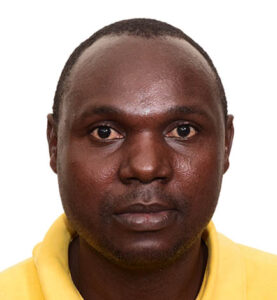
Steven Ouma Otieno

Steven Ouma Otieno
- Convergence
Kenya
‘Power of Youth for Regenerative Future‘
For over 15 years, Steven has been working with youths, women and children in slum settlement of Kisumu and part of rural Kenya to improve their livelihood, education and health. He first learned about Permaculture during Erasmus Project –EU funded in Berlin. He and his colleagues did their first introduction course in 2018, second training in Malawi, field attachment with Ghana Permaculture institute in Ghana and finally a full PDC course in western Kenya in April 2019 and lately did a refresher full PDC in Mwanza Tanzania . Some of Steven’s projects has been:- Water Management project, improving soil health through waste management upscalling, carbon absorption project, and Bokashi using the farm waste to improve soil structure and water holding capacity. Steven and his partners have trained over 300 farmers and Children in Permaculture. Since 2020, they have reached 20 primary schools with basic permaculture education and hand on experimental learning to create different permacultures project through school 4k club and thus reach over 10,000 pupils Community Permaculture training
Steven’s passion is to see Africa green, healthy and with abundant food that can feed rest of the world, and to rewild Africa and bring back prosperity and wealth through permaculture.
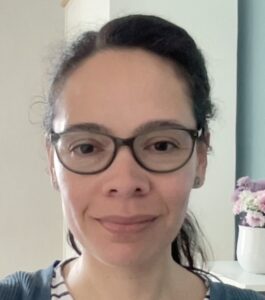
Maria Paez

Maria Paez
- Convergence
Colombia
‘Global Permaculture Insights‘
Maria Paez, International Coordinator at the Permaculture Association Britain, has dedicated her career to supporting communities and the environment. Her journey began with her involvement in marine and coastal research in Colombia. With a diverse skill set ranging from physics to engineering, Maria has played an important role at PAB, fostering connections among global permaculture communities, while amplifying the movement’s visibility. In her presentation, Maria will share insights gleaned from a recent global permaculture survey and conversations with international permaculture leaders, offering valuable perspectives on the movement’s challenges and opportunities.
This presentation offers insights gathered from the global permaculture survey 2024, complemented by information collected via conversations with international permaculture leaders. Delving into challenges, opportunities and the scope of the movement, it provides a concise overview of key findings, highlighting the diverse perspectives and trends shaping the global permaculture community.
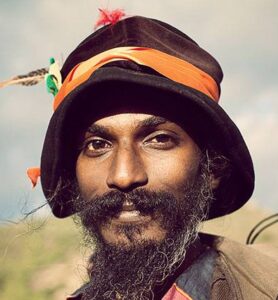
Angus Joseph

Angus Joseph
‘Dreaming the New, Writing the New Pattern : SolarPunk is a movement made for permaculture‘
South Africa
After completing his PDC, Angus began experimenting on how to apply the design methodology as a general design tool. He has used the methodology to design a festival, a temporary village, several community houses, as well as a process for bringing people together to co-create stories.
Since the pandemic, he has been modelling urban food solutions and volunteering on small organic farms in South Africa, Europe and the Pacific Northwest region.
This presentation lays out the subculture of Solarpunk, a global movement that connects and combines social justice, appropriate technology and recognition of non-human actors through stories, games, events and real world interventions that include permaculture as a vital design tool.
Angus will present the core concepts and principles of the Solarpunk movement, some outstanding examples and finally he aims to exhibit how the permaculture principle represent themselves in this emergent culture.
Finally, he will showcase how story and collaborative sense-making can be a vital change-making tool for future (city) design and re-pattering ourselves, our villages, cities, and bioregions.
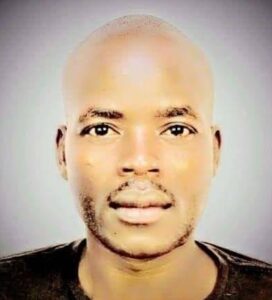
Paul Ogola

Paul Ogola
Kenya
‘Unlocking the Secrets of Permaculture‘
Paul Odiwuor Ogola, is a certified permaculture teacher and designer. He received training from Steve Jones of Sector39.co.uk in Wales, UK, and he traveled to Uganda in 2016 to complete a comprehensive two-week Permaculture Design Course (PDC). This experience deeply inspired him, and he felt grateful for the invaluable contribution of the Permaculture Design Core Curriculum. It empowered him to integrate wisdom from the past with present innovations and developments, allowing him to envision numerous possibilities for the future evolution of Permaculture. Following the training, he felt a strong need to share his newfound knowledge with his community, which led him to establish his own training center.
As a result, he has made it his mission to educate and facilitate the exchange of Permaculture knowledge and technology within his community. Three years on, many people have benefited from the practical and well-crafted teachings that he has shared. I takes pride in being the founder of the community permaculture project called Permoafrica-Centre.
Permoafrica-Centre is an officially registered Community-Based Organization (CBO) approved by the Government of Kenya. It is situated in the southern part of Kawiya village, located in the northern part of Korayo Sub Location, Kochia Central Location, Rangwe District in Homa-Bay County.
Permoafrica-Centre’s vision is to enhance the quality of life for many people in the villages and communities and to strive towards a poverty-free environment. Their goal is to introduce permaculture practices and policies that will foster the development of prosperous and sustainable organic farmers by reconnecting our surrounding community with the three permaculture ethics: People Care, Earth Care, and Fair Share. They aim to cultivate a mindset that views the world as an interconnected network of dynamic patterns and systems. They achieve this by forming small community farming groups to ensure that new agricultural developments meet the needs of local community farmers who are constantly impacted by climatic changes and lack of investment.
Through the permaculture project, the organizaition aims to educate and empower individuals and communities through training, utilizing the knowledge of how Permaculture and related agroecological practices, supported by the science of Nature’s Design, can empower the masses. They also undertake projects that revitalize our shared home beyond its former glory, paving the way forward for entire communities and their involvement in routine activities.
Many decades of poor farming practices have led to severe degradation of Kenyan soils, making it financially challenging for people to afford farming inputs. This situation has made them open to new ideas of natural farming. Permoafrica-Centre ‘s training focuses on new farming technology and practices to provide not only nutrient-rich and chemical-free sustainable food supplies but also to encourage a healthy and disease-free life on earth, as well as clean land, water, and air, in addition to promoting alternative energy sources. For them, permaculture is an economic system that benefits all life, and they believe in a community network of self-reliant, local regenerative enterprises dedicated to fair labor and trade. This approach has been seen as a valuable and sustainable social, economic, and ecological solution that will prevent the collapse of their way of life and the potential extinction of life on earth.
To find out more about their work and impact, please visit their website at permoafrica-centre.weebly.com
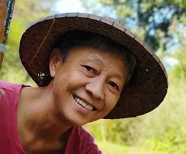
Caroline Galvez

Caroline Galvez
The Philippines
‘Healing the Land and the Community: Integrating Indigenous Knowledge with Permaculture Principles’
Caroline Galvez has been an activist since the age of 16, dedicating her life to working with women and indigenous peoples in the Cordillera Administrative Region of northern Philippines. As an education officer for the Cordillera Peoples Alliance, she advocated for marginalized communities and played a pioneering role in founding Lesbians for National Democracy, which helped establish the Baguio Pride Network, the first LGBTQIA network in the northern region. Currently, she serves on the board of the Cordillera Women Education, Action and Resource Center, while also mentoring farmers. Alongside her partner of 25 years, Cyrene, they pursued a lifelong dream of farming, leading to the establishment of The Pitak Project in 2013. This two-acre ecosystem in the village of Pideg embodies their commitment to regenerative agriculture and community resilience, with “Pitak” symbolizing the vital bond between soil and water.
Her permaculture journey began in 2014 with a PDC course in Thailand under Richard Perkins, later expanding to include holistic management. In 2019, her passion for Asian natural farming led her to study with Master Cho Han-kyu, Andry Lim, and JADAM Ultra-Low-Cost-Farming with Youngsang Cho. Now, in the later stages of her career, she focuses on observing, demonstrating, and collaborating with stakeholders to scale regenerative agriculture. Her life’s work is dedicated to empowering local communities, advocating for holistic, innovative solutions, and shifting power to local hands, all while enjoying the possibilities of what can be achieved through collective effort.
About her sharing:
This sharing delves into the synergy between Indigenous knowledge and permaculture principles, emphasizing their combined potential to heal both land and communities. Drawing from Austronesian traditions, it will explore how ancient practices of land stewardship and community cohesion can be harmonized with modern permaculture techniques. Through shared insights with her friends from the Paiwan peoples of Hunter School, it highlights the importance of cultural preservation and the spirit. Healing the Land and the Community: Integrating Indigenous Knowledge with Permaculture Principles
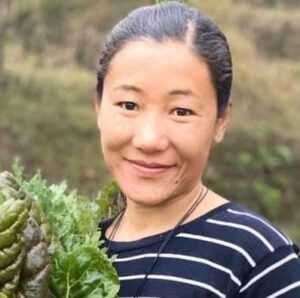
Nima Lama

Nima Lama
Nepal
‘My Journey towards Permaculture‘
having grown up in a city, I changed my career from the cosmetics business to becoming a permaculturist and commercial farmer.
Nima has been doing commercial farming in the capital city of Kathmandu for nine years. Before she knew about permaculture she used to be in the cosmetics Business. Beside my business. She served as the president of the Nepal Hyolmo Women Association in her ethnic group, the Hyolmo community. Though she is active in social work within her community, she also co-founded the Himgiri Eco-friendly Agriculture Cooperative limited with a group pf people. Their motive was to help farmers from remote areas by assisting then in selling their agricultural products and providing training on nature friendly agriculture, and provide health products to city people. As a executive member of Himgiri Eco Friendly Agriculture Cooperative Ltd people were required to completed the IPDC(international Permaculture Design course). This is how she started her Permaculture journey.
Nima also insisted that her husband should take Permaculture Design Course and then they decide to started a Permaculture Farm in Kathmandu.
During her permaculture studies, she found the word permaculture is very new to her, though the processes and principles are not. in Nepal, some remote areas farmers who are already practicing these principles, even if they are not familiar with the term “permaculture”.
In the process of learning about permaculture, I discovered that It’s not just about farming, its a way of living. In the convergence, she would be sharing her journey towards Permaculture.
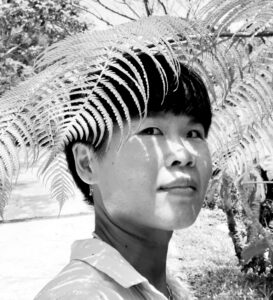
Tzu-Fen Lin

Tzu-Fen Lin
Taiwan
‘Trash into Treasures, the Upcycled Art‘
Tzu-Fen Lin (b.1990) is a fiber artist based in Taipei, Taiwan. She is adept in applying urban waste, such as plastic bags and industrial textile waste, into artworks with organic shapes. Tzu-Fen tends to interpret environmental issues and natural phenomena into sculptural art pieces, thus raising social, cultural, and environmental awareness. She now is a member of the up-cycled art collective “NO!W Across Lab”, dedicate to upcycle “the waste” with participatory art in action.
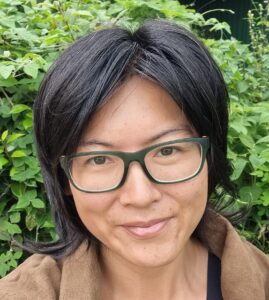
Ei Yang

Ei Yang
Australia/Taiwan
‘Introduction to natural leather tanning‘
Ei Yang a Masters in Urban Horticulture from the University of Melbourne (Burnley Campus). She has worked as a Horticulturalist, Landscape Designer and Community Organiser since her PDC in 2008. She is currently involved with her local food swap, started an organisation called The Bushcraft Village and practice bushcraft and survival skills as a way to connect with nature. She also started a local food cooperative connecting consumers with a local organic farmer. She has studied Biodynamics and worked with permaculture principles since her first PDC. She currently lives in a earth conscious sharehouse where they grow food and practice communal living and communication techniques.
She will talk about the process of leather tanning and what is involved in doing it naturally.
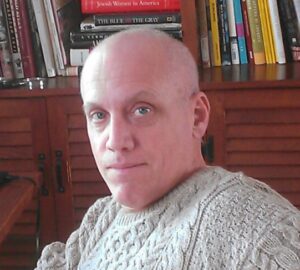
Tedrowe Bonner

Tedrowe Bonner
USA
‘Silent Destruction: How Russia’s War Will Hurt the World for a Generation‘
Mr. Bonner and Ms. Amidon work globally on developing macro socioecological solutions, using a unique fusion of social science, permaculture, and built environment science to develop holistic regenerative master plans. Typically, they work closely with governments on projects requiring societal transformation and multigenerational participation. Their current focus is Ukraine, as well as Alabama and North Carolina. They present globally and are frequent presenters at IPCs.
This discussion is based on over ten years of work performed in Ukraine that includes numerous meetings with both Ukrainian and Americans officials. Over these years the focus has been on regenerative agriculture and built environment solutions. However, this work dramatically shifted with the 2022 invasion. This talk seeks to illuminate the numerous deleterious effects of Russia’s actions on food security both in Ukraine and globally.
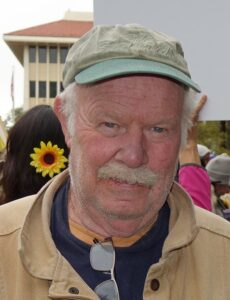
Wesley Roe

Wesley Roe
USA
Local to Global, Permaculture Community Organizing Since 2000
Margie Bushman & Wes Roe are co-founders of Santa Barbara Permaculture Network, an educational Nonprofit founded in 2000, that has sponsored hundreds of workshops and events about permaculture, ecological design, sustainability & natural building in the Southern California region and beyond. Margie was the Program Coordinator for the Santa Barbara City College Center for Sustainability, in addition to many programs encouraging sustainable career ideas for students to pursue, helped introduce Permaculture into the curriculum with a 5 credit Permaculture Design Course (PDC) making it accessible & affordable. For over a decade Wes Roe served as a Board Member & President of the Permaculture Credit Union. Both were founding members of the Friends of the International Permaculture Convergences (FIPC), an organization that was designed to help the International Permaculture Convergence organizers, and through scholarships, encourage the widest participation from permaculturists from around the globe come together & share their permaculture ideas & solutions.
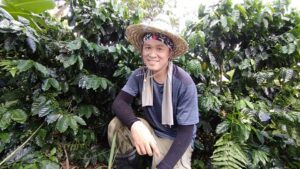
Mike Sim

Mike Sim
Hong Kong
‘Connecting farmers and artisans with the community through permaculture design to showcase the diverse possibilities of agriculture in Hong Kong.’
Mike is the director of Permaculture Institute Hong Kong, Founder of Seedtocuphk. Mike will share the results of their years of work in Hong Kong. He will explore how to use permaculture design to connect agricultural practitioners with the community, showcasing the diverse potential of agriculture in Hong Kong. His presentation will use two ‘Winter Agri-Festivals’ as examples, sharing the planning process and event highlights.
Participants will engage in group discussions to deeply explore ways of cooperation between agricultural units. Through collaboration and exchange, the event seeks to discover innovative strategies to promote sustainable development in local agriculture.
His talk aims to inspire community engagement and foster a shared understanding of sustainable development. We look forward to your participation as we explore the future of agriculture in Hong Kong together!”
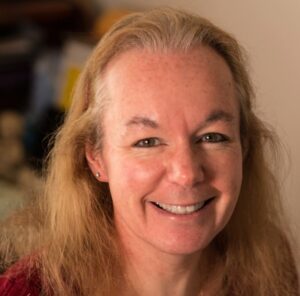
Marcia AMidon

Marcia AMidon
USA
‘Screen Demons: How Screen Use is Damaging Our Children‘
Ms. Amidon and Mr. Bonner work globally on developing macro socioecological solutions, using a unique fusion of social science, permaculture, and built environment science to develop holistic regenerative master plans. Typically, they work closely with governments on projects requiring societal transformation and multigenerational participation. Their current focus is Ukraine, as well as Alabama and North Carolina. They present globally and are frequent presenters at IPCs.
In the past few years, too much research has emerged that suggests a public health pandemic regarding screen time – televisions, smartphones, computers, and tablets – on children and teens. The fields of biology, psychiatry, psychology, and sociology are increasingly showing deleterious effects ranging from increased obesity to suicide. And there is only anecdotal data showing the impact of AI on kids. In this presentation, they are examining the impact of screen time on children and teens, and how it affects their basic, inherent need to develop social capital, resilience, and a relationship with the natural world. They will suggest how Permaculture could be a valuable tool in combating this social ill.
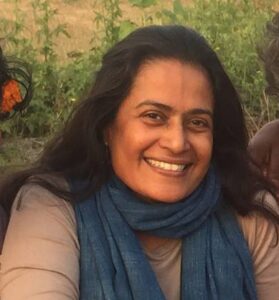
Madhavi Reddy

Madhavi Reddy
India
‘Permaculture Education for Indigenous Communities in Transition – Our experience’
Madhu is part of ‘Teaching Where it Matters’ , a Permaculture Education outreach with a philosophy on making Permaculture education accessible to remote and marginal communities who are in need to build resilient systems to reduce environmental challenges using a ‘fair share’, gift economy & pro-bono approach. Madhu has also been redesigning her monoculture peri-urban family farm near Hyderabad according to Permaculture principles to make it not only sustainable ecologically but economically. This involves production to marketing the produce directly to urban consumers. A large part of her work also includes facilitating the information about regeneration, organic farming, sustainability, in general educating folks about the same.
Madhu also brings to the table her management and organizational skills from her past corporate experience in 3 different continents. An avid traveler and photographer she uses the medium to share her work and bring a visual perspective to conversations for the urban consumer about the good food movement.
She will share her experience and insights as a Permaculture Educator in Northeast India, a region with a significant indigenous population. As part of ‘Teaching Where it Matters,’ she has taught Introduction to Permaculture, Permaculture Design Courses, and Permaculture Teacher Training programs.
She will emphasize a six-month diploma program that includes real-time projects in six different themes, tailored to the needs of indigenous communities. This program aligns with indigenous rights and advocacy, Gender inclusivity, fostering empowerment and self-determination.
Madhu will also contrast her experiences teaching in mainland India and online courses, highlighting the unique challenges and opportunities presented by each context.

Chandra Firmantoko

Chandra Firmantoko
Indonesia
Online sharing – ‘Building Permaculture Pathway into National Agenda‘
Chandra is the co-founder of Akademi Rakyat Mandiri Pangan (ARMP), or Academy of People for Foods Sovereignty, together with Khaerul Anam Masrur and Dumaria Simanjuntak. ARMP was established in 2020, with concern on how to bring the permaculture discipline to the ground through training while raising awareness of healthy food system. ARMP promotes #knowyourfood #knowyourfarmer in order to empower people to be conscious in food production and responsible in food consumption.
In this IPC15, Chandra will share how ARMP as organization and also as movement has nurtured the rise of permaculture sites across Indonesia, influenced people to have regenerative behaviours, and contributed to national policy making.
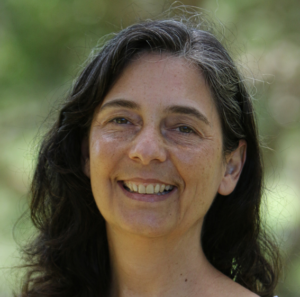
Jessica Perini

Jessica Perini
Australia
Online sharing – ‘Refugee learning, should it be online, face-to-face, or hybrid?: Challenges and Opportunities’
Jessica did her PDC with Milkwood in 2010, her Permaculture Certificate IV and Diploma with TAFE NSW. She is a city farmer and community gardener. Editing and writing is her background, and over time she has built a specialization in sustainability and permaculture. She had the great honour of editing David Holmgren’s Retrosuburbia and Rosemary Morrow’s Earth Restorer’s Guide to Permaculture, and scriptwriting Milkwood’s Organic Vegetable Gardening Course. Over the last few years she has worked online with refugee and host communities in East Africa, specifically Kenya and Uganda, towards building more resilient and connected communities.
With modern technologies opening up the world, delivering learning is easier now than ever, even in the most remote places. From the informal settlements of Kenya, to the large camps of Cox’s Bazar, we can reach refugee and displaced populations like never before. Should we prioritise the more personal face-to-face learning, or should we embrace online models, and/or create hybrid models? What are the advantages and challenges of each type of delivery, and what does the future hold for refugee permaculture education?
About her presentation:
Rosemary Morrow, author, teacher, and refugee advocate talks about her decades of experience teaching face-to-face in camps and informal settlements. Jess Perini, permaculture educator, editor and writer–who has been working with groups in East Africa via Zoom–will discuss her online learning model. Alfred Decker, a Council member of Permaculture For Refugees, will share ideas on developing online and hybrid educational models to meet the learning needs of refugees. Join them to explore the pitfalls, opportunities and challenges of new, traditional and hybrid modes of training.
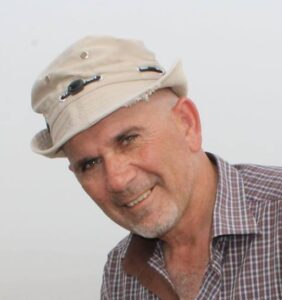
Murad Jafach Al-Khufash

Murad Jafach Al-Khufash
Palestine
‘Permaculture under occupation‘
Murad Al-khuffash is the founder of Marda Permaculture Farm, which is an internationally recognized NGO, a permaculture demonstration site, and his ancestral home, located in the Palestinian West Bank town of Marda. As a permaculture teacher, Murad has travelled internationally, and has trained a cadre of permaculture practitioners within Palestine and beyond.
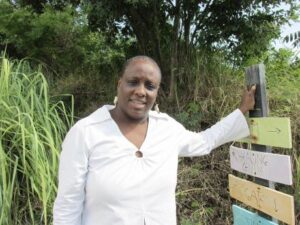
Nicola Shirley Phillips

Nicola Shirley Phillips
Jamaica
‘JENESYS PROJECT JAMAICA’S SOIL REGENERATION PROGRAM‘
Nicola Shirley Phillips has been hosting Permaculture PDC for over 12 years in Jamaica. The Source Farm Ecovillage and Community Development Institute has been the site for all the workshop. The ecovillage has become the demonstration site for much of the Permaculture Principles and Practices.
She will be sharing how Permaculture and Regenerative being practiced on an Island Nation.

Marco lam

Marco lam
USA
‘Practicing permaculture through the lens of Traditional Chinese Medicine’
Marco has been practicing and teaching permaculture and sustainable living skills for over twenty five years in diverse climates from the Andes to the Hawaiian islands. Originally trained by the founder of Permaculture, Bill Mollison, Marco’s teaching style moves away from the lecture format and emphasizes getting people’s hands in the Earth. Marco is the founder of the Mandala Integrative Medicine Clinic and a renowned acupuncturist and herbalist who grows many of the herbs used in his practice. His vision is a melding of ecological sustainability and nature-based health care where our personal healing and our land stewardship are deeply intertwined. Marco has been an active creator of new permaculture curriculum and pioneered the “Permaculture through the Seasons” course with Sandy Cruz and through the 9 month permaculture course planted seeds for a more robust permaculture community. Marco created the permaculture curriculum for the Environmental Studies department at Naropa University in 2006 and stewarded the program there for 6 years to become the most popular class on campus. Marco is currently managing a 700 acre permaculture farm in Northern Colorado with his wife Jamie and grows citrus and figs in a 2800 sq ft climate battery greenhouse and helps mountain communities become more self-sufficient. He is passionate and committed to teaching a new generation of earth stewards and healers to show up with their gifts and presence to help regenerate the relationship between people and the Earth.
About his presentation:
Chinese medicine and permaculture converge in seeing patterns. Using the lens of Chinese medicine and the 5 elements, we can honor the land and the people upon in a way that is harmonious to both.
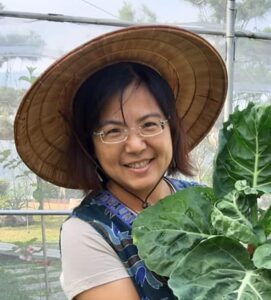
Mu-lan Lu

Mu-lan Lu
Taiwan
‘The Calling of the Red Earth – Donghai Food and Agriculture Learning Site’
“Ten years ago (2015), in the Donghai Community of Dadu Mountain in Taichung, a group of parents rented a piece of land with the intention of teaching their children how to grow vegetables. However, due to factors such as soil and climate, they faced numerous difficulties and challenges.
In 2016, they felt fortunate to encounter permaculture. They began exploring, learning, and practicing permaculture, transitioning from growing vegetables to ‘growing houses’—such as the Waterdrop House (a natural building). Gradually, they transformed the site into a comfortable, natural, and sustainable learning environment.
They have integrated permaculture principles into all our activities and courses, big and small. Their hope is to introduce more people in central Taiwan to this system of knowledge—permaculture sustainable life design—that can effectively address the survival challenges humanity currently faces.
Mulan will share the story of how the ‘Donghai Food and Agriculture Education Base’ responded to the call of this land and naturally evolved into a permaculture education base. Additionally, on December 13 and 14, they will hold special permaculture promotion activities in response to the Taiwan International Permaculture Convergence.”
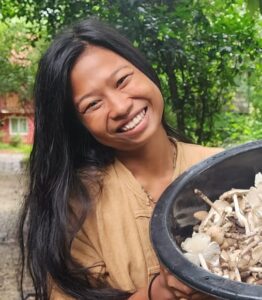
Eaint Kabyar Latt

Eaint Kabyar Latt
- Convergence
Myanmar
‘Permaculture for Myanmar’
Eaint started to encounter the concept of permaculture in 2018 when she was 19 years old and as soon as she heard about Permaculture, she was so sure that this is how I want to live my life. After that, she started to learn about gardening, ecology and permaculture by myself. This year, she got a chance to finish the PDC in Gaia Ashram, Thailand and she gained a lot of confidence in her knowledge about permaculture. She believes in permaculture because it provides the knowledge and approach how people can encounter and work with mother nature in order to meet the need of us and the need of the eco system.
She will be sharing about how she wants to integrate Permaculture principles and techniques in rehabilitation of Myanmar and how she wants to use permaculture as a tool for peace building, community building and sustainable development in Myanmar.
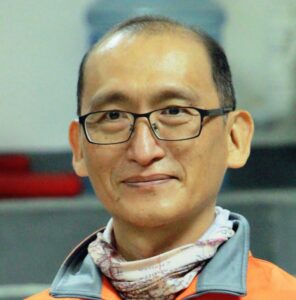
Chiu Yie Ru

Chiu Yie Ru
- Convergence
Taiwan
‘The Permaculture Response to the Hualien Earthquake: A Community and Cooperative Economy Approach’
Professor/Director of the Master’s Program in Sustainability and Disaster Prevention, Tzu Chi University; Permaculture Design Teacher; Certified Design Thinking Instructor.
PDC Teaching Experience: Taiwan, Mainland China, India.
Design Projects: Taiwan, Vietnam, Denmark.
About Chiu’s sharing:
The April 3rd earthquake had a severe impact on Hualien. Prior to the earthquake, the Hualien Permaculture team had already established local development network systems, including participatory design for elder care in the Biyunzhuang community, the Sustainable Food Consumer Cooperative, and a certification system for local small farmers’ permaculture-friendly practices.
After the earthquake, efforts will focus on using the Biyunzhuang community as a case study to promote a community currency mobile app, enhancing mutual support among residents. The initiative also includes upgrading the community’s livelihood systems, such as implementing disaster-resilient rainwater harvesting, food forests, and composting toilets.
In addition, the integrated development of community and campus consumer cooperatives will be prioritized, involving disaster preparedness storage for the cooperatives and supply assurance mechanisms with local friendly farmers.
Through the dynamic adjustment and refinement of the above-mentioned permaculture systems, the aim is to enhance resilience across economic, social, and environmental dimensions in the region.
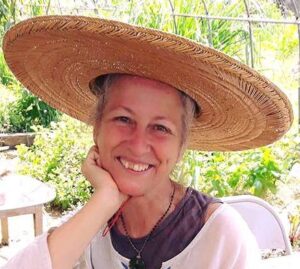
Tammy Turner

Tammy Turner
- Convergence
Taiwan
‘Post-growth economics and permaculture activism in Taiwan’
Permaculture Designer, Educator and Certified Instructor, Co-Creator of Ziran Permaculture Design, a Design and Education Collective
A native of Las Vegas, Nevada (U.S.), settled in Taiwan in 1986. Permaculture Design Certificate, Robyn Francis; Permaculture Teacher Training and Permaculture Landscape Design, PRI, Australia in 2012. Have taught at Ananda Suruci in Yujing, Tainan (2012-2018), Taipei Indigenous Community College (2013-2016), Yonghe Community College (2016-Present), Taichung Food and Agriculture Education Development Association (2017-Present), and have led build-outs, workshops and courses throughout Taiwan and also in China and India over the last 12 years.
Given the driver of so many of our climate, ecological and social crises is growth economics, a group of Taiwan-based permaculturists and social innovators and activists in Taiwan have come together to create educational programs and workshops that aim to raise awareness of alternative economic development paths informed by permaculture design.
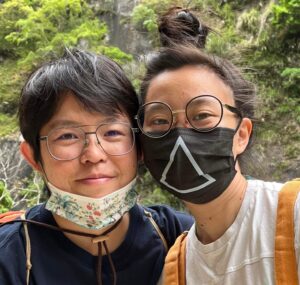
Tiffany Lay

Tiffany Lay
- Convergence
Taiwan
‘Permaculture and Contemporary Art’
Weed Day is based in Taiwan run by two foraging artists. They are conscious of the current city landscapes and the ways in which humans interact with nature. They make weed tea among other everyday essentials with the foraged weeds. When foraging they choose the more dominant and invasive plants leaving more space for native species resulting in a more biodiverse environment.
They would like to share about their community based art projects that they have worked this past year and also some of the work that we have made in the pass that we believe to be very related to the permaculture principles.
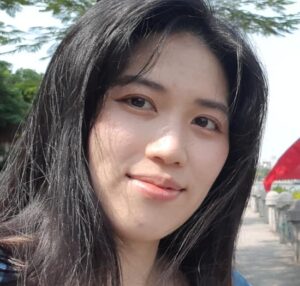
Raino Lin

Raino Lin
- Convergence
Taiwan
‘The Drive of Indigenous Smallholders’ Seed Conservation: Taste, Love, and Belonging’
This presentation will share how the Cixin team promotes seed conservation efforts in indigenous communities with the aim of sustainably preserving traditional crops. The team started with millet, the traditional staple food of indigenous peoples, by identifying and interviewing farmers who still grow millet within the communities. This process provided valuable insights that shaped the subsequent seed conservation promotion efforts.
Initially, the focus was on asking farmers, “What are you planting?” and “Why did you stop planting?” Eventually, the pivotal question emerged: “Despite the challenges, why do you still grow it?” This question fundamentally influenced the direction of the team’s seed conservation initiatives.
The findings revealed diverse motivations: some grew millet because they loved eating it, others needed it for rituals, some planted upland rice because it was their grandchildren’s favorite, and others did so out of nostalgia for their parents. These reasons highlighted that indigenous farmers’ persistence in growing traditional crops stems from profound emotional connections, developed through early-life experiences and interactions with these crops.
Thus, the team’s efforts in promoting seed conservation go beyond simply assisting current farmers in solving challenges related to growing traditional crops. They also focus on creating opportunities for younger generations to interact with and appreciate these crops. Initiatives include providing millet weekly for primary and secondary school lunches, inviting seed-conserving farmers to schools to share stories about millet, involving green restaurant chefs to teach creative millet recipes, and establishing school millet gardens.
The goal is to plant beautiful memories of traditional crops in the lives of young people, hoping that these emotional bonds will someday inspire them to take action and continue the legacy of preserving these culturally significant crops.
4o

Chia-Yuan Hsiung

Chia-Yuan Hsiung
- Convergence
Taiwan
‘Natural and Social Lab under Tectonic Forces: Pugu’s Practices in Natural Architecture and Permaculture Promotion’
Hsiung completed her PDC in 2022. She is a nature and architecture enthusiast with a background in software startups, now practicing natural farming on a small plot of land. Actively promotes permaculture and sustainable lifestyle.
Pugu is situated in the Huadong Valley in Taitung, Taiwan, a scenic but challenging location subject to frequent earthquakes, seasonal drought, typhoons, and a remote distance from urban areas. As a newcomer to this land, Pugu has experimented with various natural building techniques and explored different methods to promote sustainable living. We would like to share our tried and error and some unexpected interesting found.
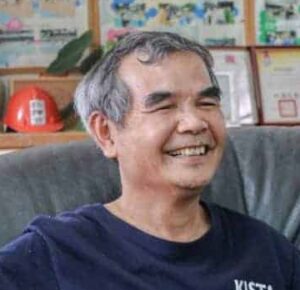
Cheng Han-Wen

Cheng Han-Wen
- Convergence
Taiwan
‘Traditional Wisdom in Taiwan’s Indigenous Plants and Culture’
Mr. Cheng Han-Wen was born, raised, and dedicated his career to serving education in Taitung, Taiwan. Committed to advancing education in remote areas, he began his teaching career at Fuyuan Elementary School, the northernmost school along Taitung County’s East Rift Valley. During this time, he also served as a science and visually impaired students’ counselor.
When he became a principal, he chose the most remote school on Taiwan’s most distant island—Langdao Elementary School—where he initiated Taiwan’s first community-based integrated development project centered around the school. Later, at the request of then-Taitung County Magistrate Chen Chien-Nien, he oversaw the construction of Donghai Elementary School in Taitung City.
Three years later, Mr. Cheng was assigned to Xinxing Elementary School, the northernmost Paivan community school, where he established Taiwan’s first sustainable campus, earning the Pan Shih Award. He then transferred to Taoyuan Elementary School, the southernmost Bunun community school, historically one of the last areas to be governed by the Japanese during their rule. There, he introduced the first KIST public-private partnership school.
Throughout his 40-year career, Mr. Cheng has maintained his passion for education and continues to contribute tirelessly to Taiwan’s educational development.
KIST stands for KIPP Inspired Schools in Taiwan, modeled after the Knowledge Is Power Program (KIPP), the largest public-private partnership school network in the U.S., with 224 schools and nearly 100,000 students, 90% of whom come from disadvantaged backgrounds. KIPP students earn college degrees at three times the rate of peers from similar backgrounds.
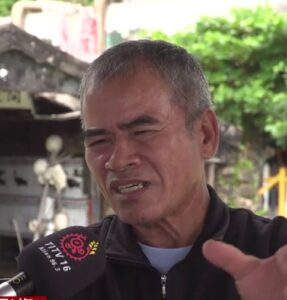
Wang Guiqing

Wang Guiqing
- Convergence
Taiwan
‘The wisdom of plant applications in the construction of Tao’s Tatala (traditional fishing boat)’
Tribal name: Sia Manmisiva, a member of the Tao people, born in 1965 on Ponso no Tao (Island of the People, Lanyu). After graduating from Provincial Taitung Senior High School, he began working at Taitung Senior High School, where he is currently employed.
In his early years, he studied under Su Yan, known as the “Father of Diving in Taiwan,” and worked as a diving equipment technician and instructor. He holds certifications as a diving and lifeguard instructor from the Chinese Underwater Association and the National Association of Underwater Instructors (NAUI).
Returning to his hometown of Lanyu in 1995, he became a passionate advocate for environmental and ecological conservation on the island and the preservation of local ecological culture. In 2009, he received the “Water Resources Conservation Merit Award” from the Water Resources Agency of the Ministry of Economic Affairs.
In addition to his regular work, he actively engages in field research on the history and culture of the Tao people and the collection of information on local flora, fauna, and ecological culture. He has co-authored several papers with Dr. Cheng Han-Wen on topics related to ecological culture, including the shellfish, birds, fish, and traditional canoes of Lanyu.
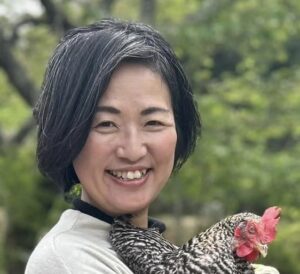
SHOKO SAKAKI

SHOKO SAKAKI
- Convergence
Japan
‘Urban Permaculture, a Japanese Case’
Shoko is a permaculture designer and the founder of a permaculture community called “Aichi Urban Permaculture” in Aichi, Japan. Aichi Urban Permaculture organizes permaculture workshops and a market event for sustainable living and society called “Sukoshizutsu. Market (Little by Little Market)”.
Shoko will be giving a presentation on examples of Urban Permaculture practices in Japan.
(Examples at train stations, universities, offices, etc.)
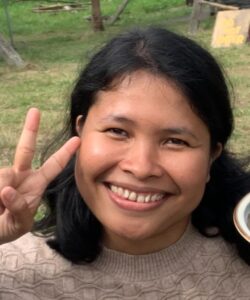
Susi Simanjuntak

Susi Simanjuntak
Indonesia
‘Permaculture Design Practices: Their Impacts on Sustainable Environments in China and Indonesia Case Studies’
SUSI ANDRIANI SIMANJUNTAK (辛淑琪) is currently a student in Chang’an University, Xi’an, Shaanxi, China, PRC. She is taking a PhD program in the major of Environmental and Social Development Department in Faculty of School of Marxism. She obtained her Master’s degree from Taiwan, National Dong Hwa University (NDHU) in Education and Human Potential Development department.
Susi was born in a farmer and educator family background. Susi has read many journals and books related to agroecological approach that can sustain human and nature without sacrifice oneself. One of agroecological transition is Permaculture design approach. That is why she wants to engage, study, participate, and be the practitioner of Permaculture in my academic career and my community.
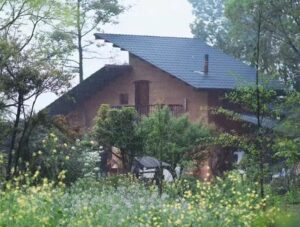
Rui Liu

Rui Liu
China
在中國湘江流域,與生態農場和療愈相關的樸門實踐。5年時間,從荒山開始,建造夯土房,窯洞、堆肥和小規模種養結合,到現在呈現出自給自足的花園農場。總結了在地的食物森林、水生植物覆蓋肥等實際的過程和經驗。Rui’s permaculture practices includes ecological farming and nature healing in the Xiang River Basin in China. In 5 years, starting from the barren hills, he built rammed earth houses, combined cave dwellings, composting and small-scale planting, and now it has become a self-sufficient garden farm. His practicing experience includes local food forests, aquatic plant mulch fertilizer, etc.

